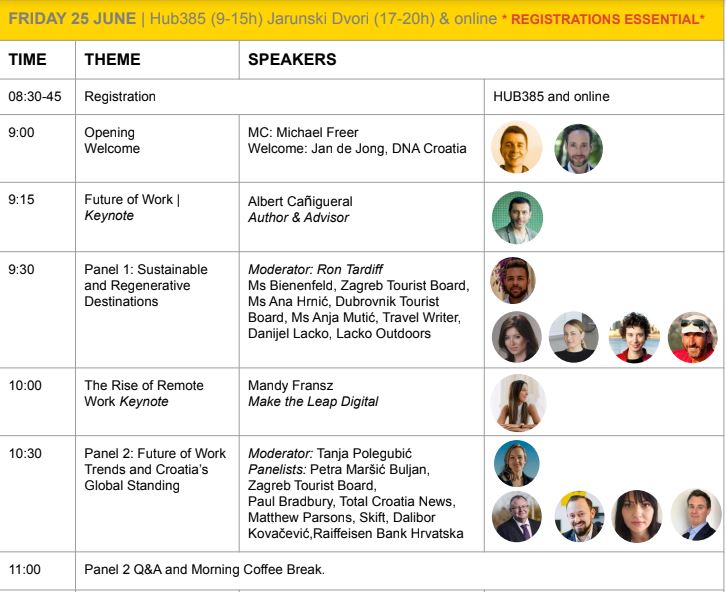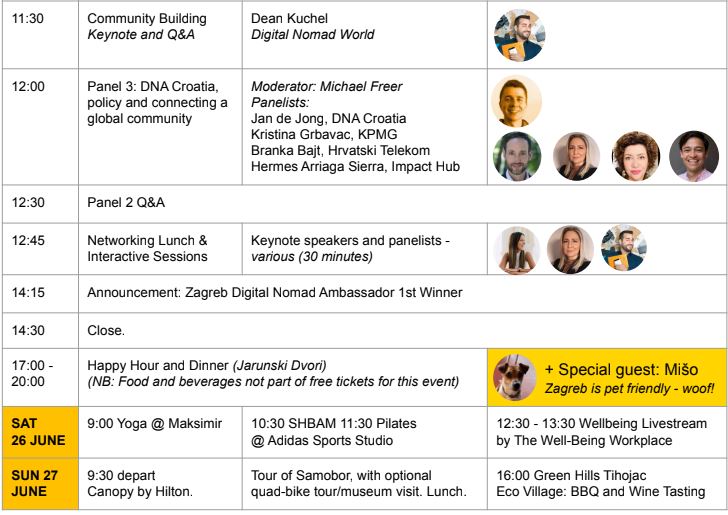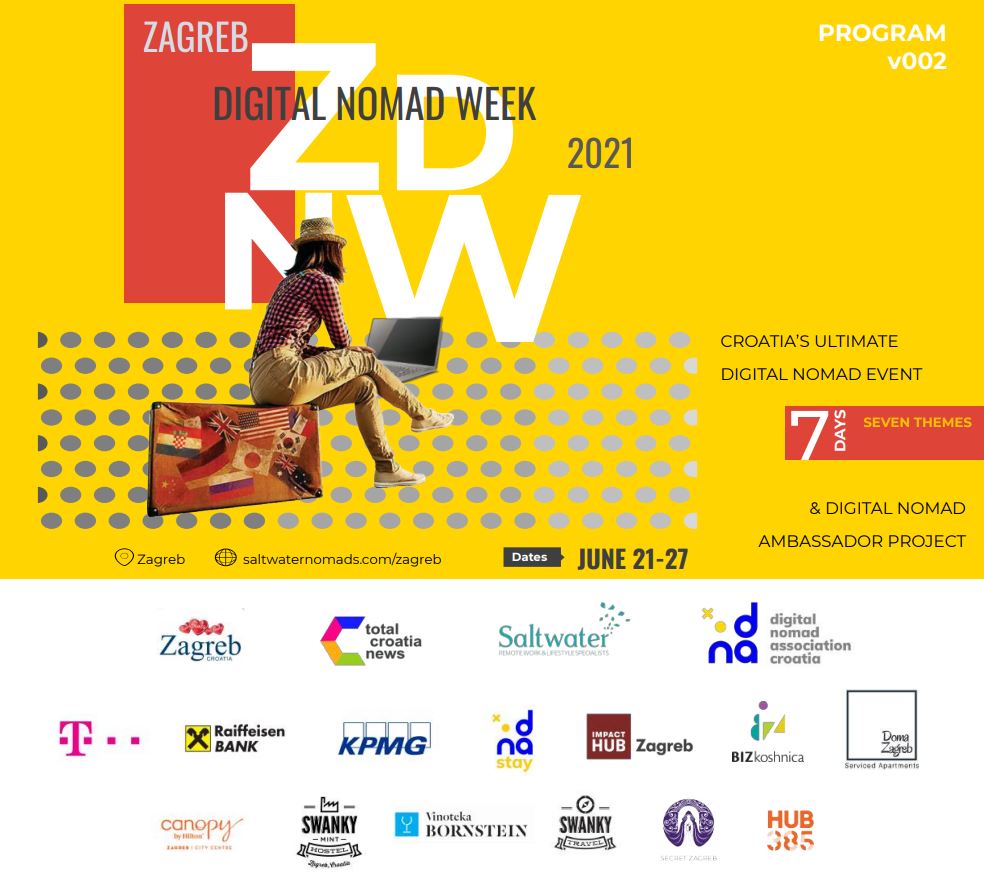50-year Concession Granted For Zagreb Deep Sea Terminal In Rijeka
June 25th, 2021 - The Rijeka Port Authority Governing Council decided on Thursday to grant a 50-year concession for the development and economic use of the Zagreb Deep Sea terminal in the port to the APM TERMINALS/ENNA LOGIC Consortium.
APM TERMINALS is based in the Netherlands and ENNA LOGIC in Vukovar. The consortium will now establish a special-purpose company in which APM TERMINALS will hold 51% and ENNA LOGIC 49% and with which the Rijeka Port Authority will sign a concession agreement.
The estimated value of the concession is HRK 20.5 billion (excluding VAT), and the determined amount of the fixed concession fee is €2 million per year.
For more news, follow TCN's dedicated page.
Professor Slavko Krajcar Death: A Look at the Life of Fantastic FER Professor
June 24, 2021 - Following the professor Slavko Krajcar Death on June 18, take a look at the life of an established educator and scientist whose expertise made a significant contribution to Croatian politics in the energy sector.
„The influence of a teacher can never be erased“, or as an American historian Henry Brook Adams put it, „Teachers affect eternity; no one can tell where their influence stops“- these two are just some of the inspirational quotes about teachers you can find with a little assistance from Google.
Students at the Faculty of Electrical Engineering and Computing (FER) at the University of Zagreb are recognized in Croatia for their innovations. At the end of the day, they owe their excellence to the professors that educated them.
One of such professors was Dr. Slavko Krajcar that sadly, as FER official website reported, passed away on June 18, last week.
"Professor, Dr. Slavko Kranjcar made a significant contribution to the Faculty of Electrical Engineering and Computing as he was a dean of the Faculty from 1998-2002, after which he was the head of the department for high voltage and energetics from 2002-2006. He will remain in permanent memory as a respected scientist, expert, and a colleague“, said FER in an official release.
Kranjcar was also the member and the president of the Managing council at Ruđer Bošković Institute (IRB) that also expressed its condolences.
Born on January 14, 1951, Slavko Krajcar enrolled to study in FER in 1969, followed by graduating from Technical High School in Pula. He majored in FER in 1980 and got his Ph.D. in 1988. His scientific and lecture career started in 1974 when he was an assistant on a manufacturing electric energy course. From there on, he mentored various students on different levels, ten of which earned Ph.D. statuses under his guidance.
Kranjcar was active in the media, giving interviews and writing op-pieces on education issues, specifically the education of engineers in the 21st century.
„Krajcar participated on many domestic projects regarding science or economy as well on international scientific and professional projects. Counting just after the year 2000, he participated in over fifty projects, 36 of which he led. He was one of the leading figures in making Croatian Energetic Strategy (which the parliament accepted in 2010) and the Energetic Efficiency Strategy (2008) as well as executive plans on new strategies (2008-2020)“, recalled FER.
They added Fer rewarded Krajcar in 2002 when he received Josip Lončar's golden plaque for his dedicated scientific and educational work. He also received special recognition for developing SRCE- The Computer Centre of the University of Zagreb in 2011, followed by the Ho CIRED award for contribution in developing the field of electro distribution in Croatia. He also received HRO CIGRE recognition in 2018 for the overall contribution to the electro energetic activities in the Republic of Croatia and the Nikola Tesla Award in 2020 for the contribution to science, education, and profession in the field of electrical engineering and computer sciences and application of those technologies.
Believe it or not, Krajcar even made time to contribute to art and culture as well. He published two books of poetry, edited four books regarding cultural issues, and was the president of the Association for Čakavski dialect (distinct for the use of Ča as a word for what and conversated on coastal Croatia).
Learn more about Croatian inventions & discoveries: from Tesla to Rimac on our TC page.
For more about science in Croatia, follow TCN's dedicated page.
Zagreb Digital Nomad Week Recap, Keynote Videos, Weekend Program Announced
June 24, 2021 - Day four of Zagreb Digital Nomad Week - the keynote speeches so far.
A very international week in the Croatian capital, as the inaugural Zagreb Digital Nomad Week began on Monday, 7 days covering 7 themes in 7 locations to showcase the diversity of the city. The themes - cybersecurity, online presence, remote careers, tax & finance, wellbeing, and exploring Zagreb, have attracted a range of expert Croatian and international speakers, several of whom flew in for the event.
After months of lockdown, the more relaxed atmosphere in Croatia has been welcomed by its visitors, and the chance to finally attend an in-person event, as well as the social apects of the event - a daily Happy Hour in a different location, as well as nightly themed walking tours with the city's most innovative tour guide, Iva Silla from Secret Zagreb - have been a welcome addition to the week.
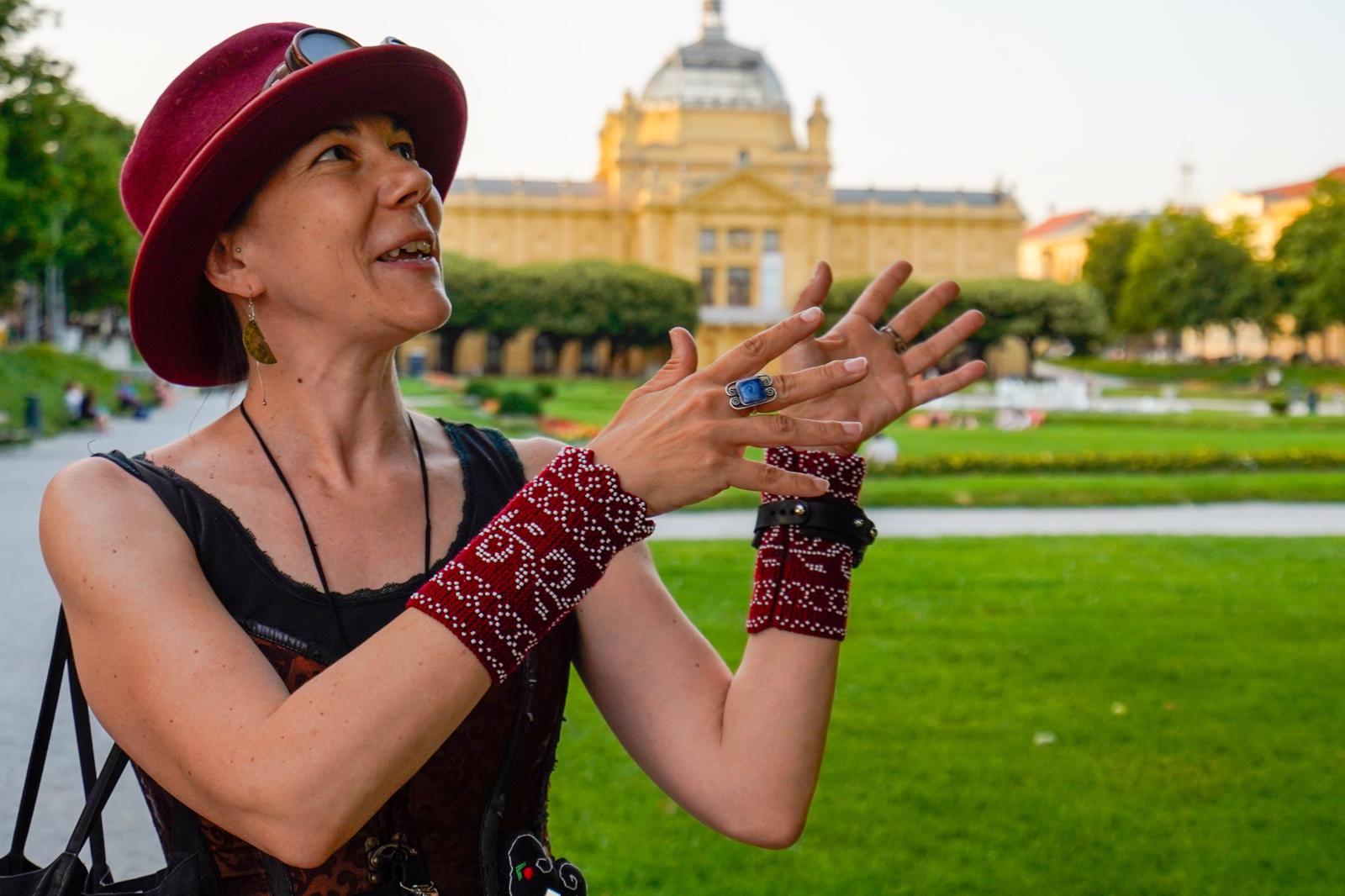
Zagreb Digital Nomad Week 2021 & Zagreb Digital Nomad Ambassador Project is a collaboration between Saltwater Nomads, Total Croatia News, and Zagreb Tourist Board, with the latter financing the project. Each major session is being livestreamed on the TCN Facebook page and Zagreb Tourist Board YouTube channel. These sessions will remain available on the web and are useful resources for future reference. All of the panels an keynotes from the first 4 days can be found below.
The week was opened at Canopy by Hilton by Saltwater Nomads CEO Tanja Polegubic, State Secretary for Tourism and Sports, Sandra Herman, representing the Mayor of Zagreb, Ivo Spigel, Zagreb Tourist Board CEO Martina Bienenfeld, and TCN CEO Paul Bradbury.
The main sessions were as follows:
Marko Rakar - recognised by the World eGovernment forum as one of the “Top 10 who are changing the world of politics on the internet” - was the keynote on the day's first topic, cybersecurity. Marko's audience grew visibly less comfortable the longer he spoke, with more attention to passwords and online security agreed by all at the end.
Mandy Fransz flew in from the Netherlands to talk about the importance of online presence, with a special focus on the power of LinkedIn. Mandy is an Online Business Consultant, LinkedIn Expert, Remote Work Advocate, and the owner and founder of Make the Leap Digital, a boutique consulting agency helping purpose-driven entrepreneurs and businesses to unlock the power of LinkedIn and remote
work.
She founded Make the Leap Digital from a tropical co-working space in Bali and often shares practical tips and behind-the-scenes content with her community of +23,000 social media followers. By now, she has helped dozens of clients worldwide through speaking, consulting, and interactive (virtual) workshops.
In 2019, Mandy was nominated one of the most inspiring and ambitious women entrepreneurs in The Netherlands and she has been featured in top international publications such as Thrive Global, VIVA400, & LINDA. Mandy currently manages the Remote Workers on LI - a LinkedIn community of over 65,000 members.
Beaming in from Australia was Taki Moore, who leads Million Dollar Coach - a community and proprietary tools and resources
exclusively available to the world’s top coaches. With an online community of over 20,000 - this “coach to the coaches” operates on 3 principles, each masterfully crafted to ATTRACT the right prospects, CONVERT them to happy clients, and DELIVER programs at scale.
Kristie Sullivan and Ron Tardiff
Making the swtich to the digital nomad lifestyle was an interesting session with two American nomads from different backgrounds.Kristie Sullivan has an accountancy background and was an office worker until she took a severance package last year.She now travels the world and has an online community to help executives go remote. Kristie is currently on her second visit to Croatia.
Ron Tardiff is a scientist whose work is related to ecology and marine protection. He has studied marine sciences, maritime affairs, aquaculture and sustainable blue growth in seven institutions around the world. Ron conducted research, developed a strategy, managed projects and initiatives for 11 organizations with the aim of promoting a sustainable blue economy and maritime issues at the highest levels of government. Ron is from the States but currently living in Budapest.
One of the most interesting panels was catching up with 4 of the Dubrovnik Digital Nomads-in-Residence to learn more about the realities of being a digital nomad, with topics covered including travelling with pets, finding a social life in a new destination, and how to choose a destination.Charlie is currently in London, Vanessa in Bol on Brac, Alyssa in Barcelona, and Ron in Zagreb.
Day 4 was tax and finance and opened by Kathleen di Paolo. Kathleen is an International Consultant, Founder and Owner of Wanderers Wealth. Her goal at Wanderers Wealth is to empower Digital Nomads and all other Wanderers of the World with financial freedom. She is an expert in offshore tax issues, international corporate structuring and global residency matters.
Kristina Grbavac of KPMG was on hand to discuss the implications for Croatia's digital nomad permit, and a range of tax questions and issues. A strong supporter of the digital nomad opportunity, Kristina is an international tax and finance expert - who leads the way in her field, with an award winning career with a respected global consultancy.
Kristina joined KPMG in Croatia in 2000 as a graduate trainee after completing her bachelor’s degree in economics at the University of Zagreb. Since then Kristina has provided a full range of tax planning, advisory and compliance services to clients in various industry sectors. Kristina is a fellow of the UK Association of Chartered Certified Accountants. She is responsible for Global Mobility Services at KPMG in Croatia since 2009.
Kristina is a Women in Adria award winner in the Future Leaders category.
Friday is the biggest day of the week, with several quality keynotes and panel sessions - see the programme below. And PLEASE NOTE that there has been a location change for tomorrow's event. The event will now take place at HUB385. Registrations are required (attendance is free). You can register here.
Friday's session will finish with the announcement of the first Zagreb Digital Nomad Ambassador, who will take up residence in Doma Zagreb on July 1. Learn more about that programme and why not apply yourself? The project runs initially until December 31.
Saturday's Wellbeing theme will kick off with yoga with the Indian Embassy in Maksimir Park. Head over and introduce yourself. This will be followed by SHBAM at 10:30 and Pilates at Adidas Sports Studio, and a Wellbeing Livestream by the Well-Being Workplace from 12:30 to 13:30.
Sunday's Explore Zagreb programme is in more detail below. Registrations will open shortly on the Saltwater Nomads website here.
1000 - Depart from Canopy by Hilton
1030 - Short 15-min walking tour of Samobor with Samobor Tourist Board
1100 - Option 1 - 1 hour quad biking. MAX 8 people - cost 225 kuna per person, 2 per bike. (I hour)
1100 - Option 2 - Tour of Samobor Museum
1300 - Lunch at Samoborski Klet (everyone pays their own bill)
1500 - Departure for Zumberak Nature Park and Green Hills Tihocaj Eco-village
1600 - Arrival at Green Hills
Welcome drink and presentation from owner Davorin Stetner
Overview of Zumberak Nature Park by principal Robert Brkic
Wine tasting and barbecue
Short tour of the eco-village
1900 - Departure to Zagreb
1945 - Arrival in Zagreb
Meet one of Friday's keynote speakers, Albert Cañigueral, one of the Dubrovnik nomads-in-residence, and recently appointed to lead the Catalan Government's Transparency and Open Data division. Albert will be focusing on the topic of the day, the future of work.
Tourist Board Director Martina Bienenfeld on Zagreb Digital Nomad Week, Ryanair, Tourism in Pandemic
For the latest news and features od digital nomads in Croatia, check out the dedicated TCN section.
Building Zagreb Community: ZDNW Keynote Dean Kuchel, Digital Nomad World Interview
June 23, 2021 - It is Zagreb Digital Nomad Week, and among the speakers are the owners of the two biggest DN LinkedIn groups. Meet one of them, Dean Kuchel of Digital Nomad Israel and Digital Nomad World.
We are delighted to welcome Dean Kuchel from Israel to Zagreb Digital Nomad Week. Dean will be delivering a keynote speech on community building, an essential step Croatia will take in its efforts to develop its digital nomad presence. You can register to attend online or in person here.
1. More than 100 countries visited, a digital nomad for years. It sounds like a perfect life! Tell us how it all started. What was the trigger to set you on your path?
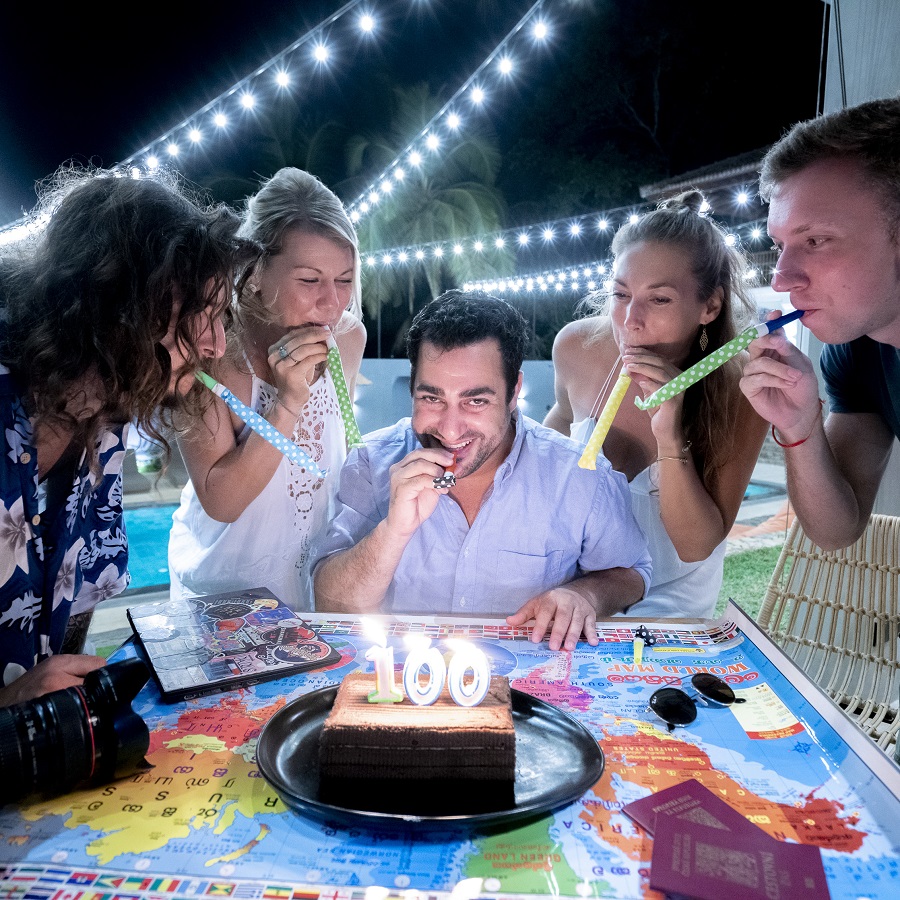
Yes, I have visited over 100 countries in 7 years. It is the perfect life and I am living my dream. I don't think the way I do it is right for everyone, but there are definitely many bonus points, and I have been living a great life on the road for the last 7-8 years.
It all started almost by mistake for me. The most lucrative job you can have is a relocation, to somewhere like the States. Do a few years there, then return to your home country - in my case, Tel Aviv in Israel. I got a job in San Francisco, but after I waited for 2-3 months for the visa, my company asked me to work remotely, which I did.
This is how I met the nomadic lifestyle. I travelled to Taiwan and Japan, then visited a few countries in Europe, all while working remotely. While I was on this journey back in 2014, I started to meet other people enjoying a remote lifestyle. This is where I first met with digital nomads. I discovered a whole new world where I could combine one of my biggest passions - travel - and work.
It is important to step back and note that my mother is a tour guide and has been travelling from an early age. She has been leading groups abroad and around the world. So travel was in my DNA from a very young age, and I always loved to travel. I generally say that I travel for people not places. The world is beautiful but it is the people that make travel special.
When I finally got my work visa, I told my company that it was too late and that I was hooked on this lifestyle and could not return to the office. They answered very simply - you earned it. Remote work can be just as effective, sometimes more so, than being in the office. I showed that I was an effective communicator and team player working anywhere in the world.
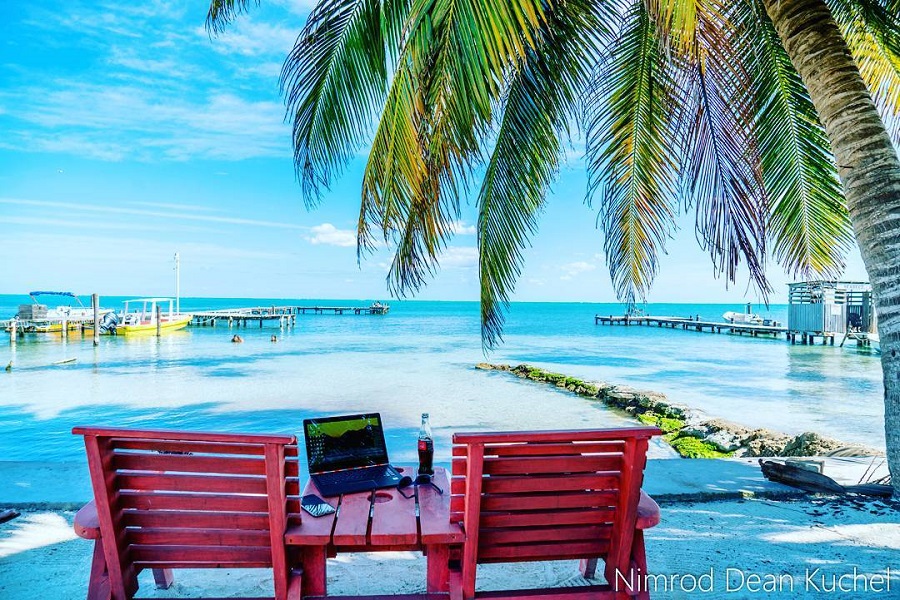
2. Focusing on Europe, where do you think the best places are for digital nomads and why?
There are many, many good countries and hot spots. The highlights would be the Canary Islands and Bansko in Bulgaria. Mostly for the community. Having a like-minded community to connect to which understands you, with people who have made the same life choices as you. It is very supportive and helps each other to grow. Community is key to make a destination lucrative as a digital nomad destination, as happened in the Canary Islands and Bansko over time.
We are seeing beautiful efforts from countries such as Portugal, and of course Croatia, spearheading this change in Europe, allowing nomads to spend time in the country, putting in infrastructure. Events such as Zagreb Digital Nomad Week are great. We are seeing more co-working spaces and more accommodation available on short-term leases.
This broadens the range of countries to visit, and when we mix the basic needs for digital nomads, such as a good WiFi connection, good places to work from, and an affordable cost of living, then we are definitely looking at countries such as Hungary, Poland, Czechia, Bulgaria, Ukraine and Croatia. These are beautiful countries with great culture and good infrastructure. They will be very attractive for nomads in the coming years, and they will benefit greatly from this shift in forces when it comes to where people choose to work from. We will see people leave the States, UK, Germany and other 'first-world' economies, and relocating to more affordable places. Those countries welcoming digital nomads will gain a lot form digital nomads, both economically and immersion in the local community.

3. The concept of digital nomad tourism is quite new here, and we are learning about the importance of community. Tell us more about this.
Community is to compensate for what we leave behind, for the sacrifice we make, the family, friends and coleagues. It is a network of people who understand our needs, our choices, our lifestyle. The community doesn't question us, about why we do things or how we do them. It gives you a sense of belonging be part of something bigger than just yourself, the movement.
4. I have noticed around Croatia that there are a growing number of nomads, but this building of community is not as strong as it could be. Tell us about the importance of community.
Community is of course a key part of life for all of us, not just digital nomads. But it is especially important for digital nomads, many of whom travel solo, but do not want to travel alone. This is where community comes to compensate for lack of family and friends. This is why we see organic communities developing in places like the Canary Islands, Bansko in Bulgaria, Medellin in Colombia, Bali, and Chiang Mail in Thailand.
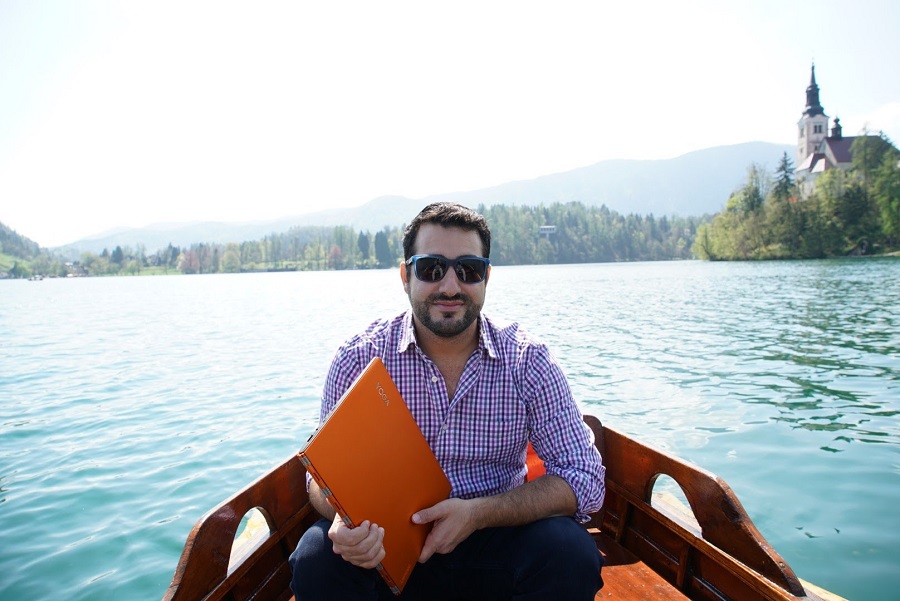
It is this natural need to connect to other people, people often with the same interests and life choices. The community also understands the lifestyle. Sometimes other people look at us and say we are crazy with this life. But a lot of us believe that this lifestyle can work and be sustainable, and when you have a community of people who have made the same life choices and sacrifices, it can be a lot of fun and great way to see the world. We all have our down time, of course, our hearts broken and our bad days, and we need that community to support us. Especially when we cross borders into cultures which are very different from our own. The community makes the transition into new places much easier. There is also the bonus of meeting people who you have already befriended in online communities.
Moving from community to community can be to see the world, but also to be around like-minded people, driven people. For me personally, there is no way I could sustain 7-8 years of travel with no sense of community. I myself run an online community of some 23,000 people, the fourth largest of its kind in the world - Digital Nomads Israel. And I am working on a new global community called Digital Nomad World, with the idea of connecting us digital nomads with each other to exchange ideas, support, and to share all the love and good ideas that we experience.
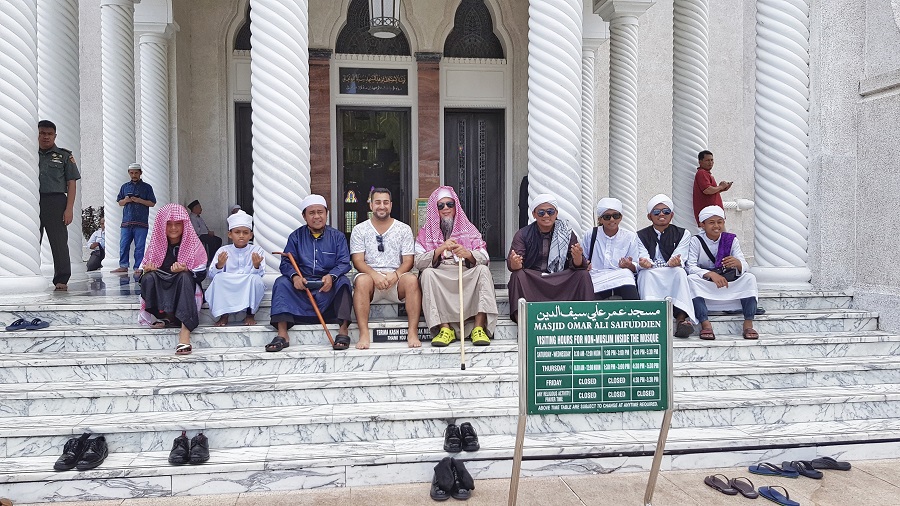
5. If we are looking for a community-building case study, which country and why?
If we talk about community-driven, Bansko in Bulgaria or the Canary Islands are great examples. In both cases, there are individuals like Matthias in Bansko, or Nacho in the Canary Islands. People who put a lot of effort and risk their own money to create co-living and co-working spaces. They put on conferences for digital nomads, and build up community. They are true leaders, and this helps to create these places as hot spots for nomads.
When we look at the authorities, I don't see enough initiatives. If we look at Estonia and the e-residency, I don't think this is really geared towards nomads. If we want to focus on nomads, take a look at what Barbados is doing, although the entry price is quite high, as they are targeting higher-earning nomads.
Countries such as Czechia and Georgia and other countries are also opening up, welcoming people who are earning money abroad. I am happy to say that Zagreb right now at the top in terms of action taken, but we also have places like Bali and Thailand.
Bermuda, Barbados, Dubai are all forming visa policies allowing digital nomads to come. Some countries target different audiences, with Barbados targeting high earners, while Georgia is more accepting of all. Georgia will be interesting to follow, and I think it will benefit a lot. It is becoming popular and the community is starting. It is relatively close to Croatia and the two countries could form a nice travel bubble.
And Croatia. It was one of the first to attract nomads with the visa. It will be interesting to follow progress to see people take residency, start forming companies.
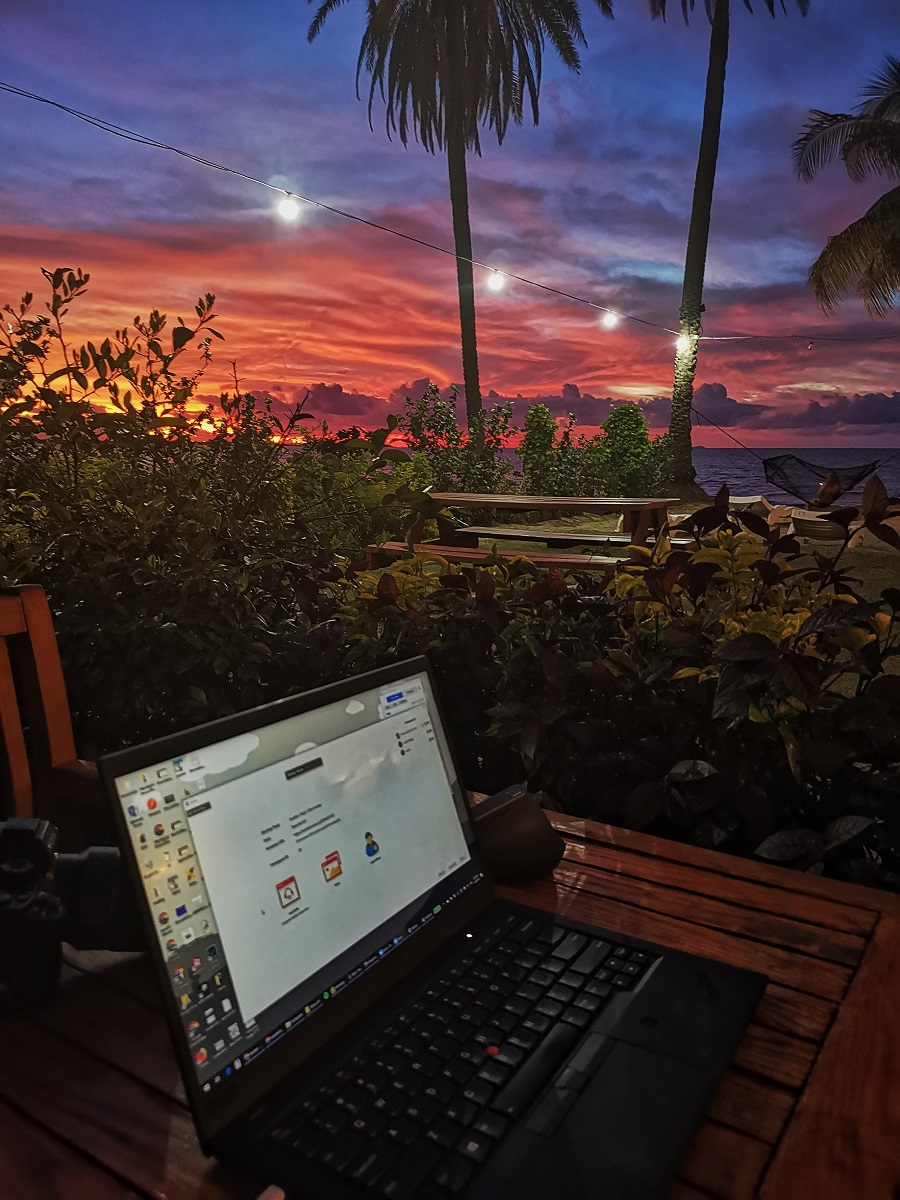
6. How does Croatia rate as a nomad destination in your view, and what should it be doing to raise its profile to digital nomads?
I think Croatia is currently somewhere in the middle at the moment. It has all the great things that nomads are looking for - lifestyle, nature, city life, beautiful see, affordable, history and easy to move around. It has the basic ingredients.
What needs to be added is that community, which will take time. But we are seeing leaders like Tanja from Saltwater Nomads taking this forward. The authorities should continue to stay involved, but Croatia has positioned itself very well. It has great potential. Keep being an innovator and grow that community.
I believe that Zagreb and Croatia are on the right path to become a digital nomad hot spot in the near future. We are seeing a very rare and unique effort by the local authorities and local community and the digital nomad community. The digital nomad permits, which Croatia came up with as a result of the local community working closely with the local authorities.
What Tanja is doing at Saltwater Nomads is doing is an amazing achievement, really unique right now in the world. It makes it very attractive for nomads to come to Croatia and spend time. Kudos to everyone involved in this project. Right now a lot of nomads are stuck in one place due to COVID-19, but I believe that once the world opens up, we will see more and more people coming to visit your beautiful country.
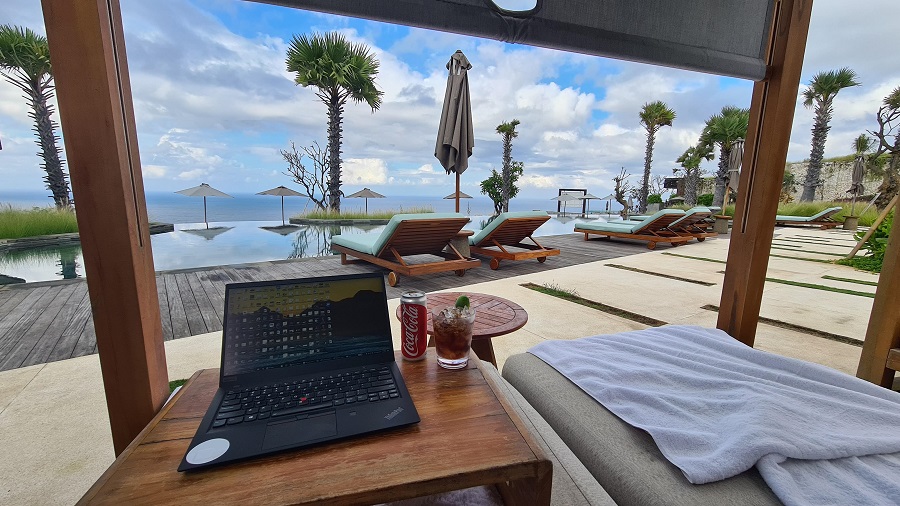
It is just a matter of time to see initiatives such as Zagreb Digital Nomad Week to bear fruit. This is exactly the right thing to do at the moment, this is what attracts people. Of course, as well as keeping the infrastructure up to date. I am talking about good Internet, encouaging short-term lets, and solving other challenges that nomads face, such as access to banking, access to healthcare, access to local services such as gyms, market opportunities for investments for nomads.
A great place to learn from is Estonia. Take a look at what they did with their e-residency programme, for example. And events. More and more events. Events bring people together. Affordable living and co-working spaces bring people together and helps to strengthen the community.
And of course, leadership. Every community needs a leader. To have it happen organically is not always easy. I think Tanja is setting an amazing example as a leader in Zagreb and Dubrovnik. With time, you will have more leaders, local people but also people from all over the world.
Social media is also very important, and digital nomad communities rely more on new forms of media. We see more social networks, more social media, platforms such as Instagram and Tik Tok. Croatia needs to be there to put itself on the map, providing simple information on where to go, where to stay and what to do, tailored for digital nomads.
But really overall I think Croatia is putting in the right effort, it has the right leaders, including the support of the government which is incredible to see. All this together will make Croatia a hot spot in the next couple of years.
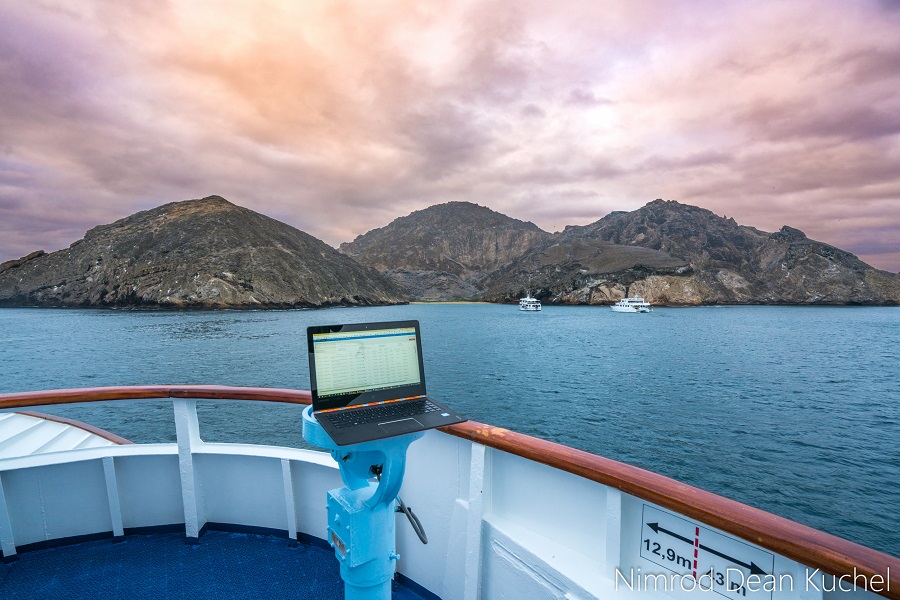
7. Tell us about your involvement in Zagreb Digital Nomad Week, and why did you decide to come?
It was an easy decision to come. I have been following Croatia and Tanja for some time. I am happy to take part in every event that helps to grow the community. I am very happy to play a small part in helping all this grow, and I look forward to meeting old friends, making new friends, and taking part in this great event. I will be speaking about community building.
Meet Friday's keynote speaker, Albert Cañigueral, one of the Dubrovnik nomads-in-residence, and recently appointed to lead the Catalan Government's Transparency and Open Data division. Albert will be focusing on the topic of the day, the future of work.
Meet tomorrow's host - BIZkoshnica, Zagreb Coworking Since 2015: Mirela Marovic Omerzu Interview.
Tourist Board Director Martina Bienenfeld on Zagreb Digital Nomad Week, Ryanair, Tourism in Pandemic
For the latest news and features od digital nomads in Croatia, check out the dedicated TCN section.
HNS and St Catherine Specialty Hospital Invite Christian Eriksen to Zagreb for Genetic Testing
June 22, 2021 - After collapsing on the pitch during the Euro 2020 game between Denmark and Finland, HNS and St Catherine Specialty Hospital want to help Danish footballer Christian Eriksen.
St Catherine Specialty Hospital Management Board president and Croatian Football Federation health commission president Dragan Primorac sent a letter to the Danish Football Federation president Jesper Moller and Secretary-General Jakob Jensen, urging them to have their national team member Christian Eriksen (29) perform a comprehensive genetic test in Croatia to determine the possible genetic basis of cardiac arrest, reports Index.hr.
The Denmark national team player shocked the world when he collapsed on the pitch in the 43rd minute of the match between Finland and Denmark on June 12. The doctors revived him on the pitch for ten minutes. Eriksen was transferred to the hospital, from where he later contacted his teammates, and they then decided to continue the match. He was then fitted with an ICD, a device that can restore normal heart function.
It is known that the Croatian Football Federation and the St Catherine Special Hospital, in cooperation with the American corporation Invitae, launched a project in June 2019 to prevent sudden cardiac death, which with a complete cardiac examination (12-channel electrocardiogram, heart ultrasound, ergometry, and 24-Holter) includes the most comprehensive analysis described in the literature genes associated with conditions that can lead to sudden cardiac death in athletes.
Eriksen's genetic testing would be conducted as part of the project "Development of a Comprehensive Model for the Prevention of Sudden Heart Death: Analysis of 294 Genes and Related Mutations Associated with Conditions That Can Lead to Athlete's Sudden Heart Death."
If, after genetic testing, the occurrence of a mutation in one of the genes associated with conditions that can lead to the sudden cardiac death of an athlete is determined, it will be necessary to test his children as well. Eriksen, meanwhile, is fitted with an implantable cardioverter-defibrillator (ICD) that can successfully detect the occurrence of arrhythmias in the future and restore a normal heart rhythm and save a person's life.
The first results related to the role of specific genetic markers as possible predictors of sudden cardiac death in athletes were conducted by scientists from the USA, Canada, Croatia, and Germany, led by Dr. Primorec, and recently published in the scientific journal Frontiers in Medicine.
The results of a study involving three generations of families of athletes who died of sudden cardiac death have been published, and the study has analyzed the largest number of genes associated so far with several inherited cardiac conditions leading to sudden cardiac death 294 genes.
Among the analyzed genes are those that lead to various disorders of the electrical activity of the heart, including hereditary disorders of cardiac ion channels, such as prolonged QT interval syndrome, Brugada syndrome, but also genes whose changes lead to structural changes in the heart, such as cardiomyopathies (most often hypertrophic cardiomyopathy), and several other conditions.
HNS President Davor Suker introduced FIFA leader Gianni Infantino and UEFA president Alexander Ceferin to the published, as it is now called, "Croatian model for the prevention of sudden cardiac death in athletes," which includes the analysis of the largest number of genes associated with sudden cardiac death, especially in players from risk groups.
During the start of the project in June 2019, a member of the project team and one of the most prominent German cardiologists, prof. Dr. Johannes Brachmann stated that the latest scientific findings suggest that classical cardiac examination is not sufficient in the early detection of conditions that can lead to sudden cardiac death in athletes and that genetic screening in predisposed athletes plays a key role.
It was then particularly emphasized that extremely intense physical activity can increase the risk of sudden cardiac death in predisposed athletes. Following the Guidelines (Positions) of the Croatian Society for Human Genetics of the Croatian Medical Association, all persons identified through screening as persons at higher risk will be provided with information as part of genetic counseling during risk identification and after additional tests. This will be the basis for optimal treatment and, if necessary, exclusion from sports of high-risk athletes to reduce the incidence of sudden cardiac death.
Since the beginning of the project "Development of a comprehensive model for the prevention of sudden cardiac death: Analysis of 294 genes and associated mutations associated with conditions that can lead to sudden cardiac death of athletes", on two occasions, the Croatian Football Federation sent a letter to all First, Second and Third HNL clubs, First and Second HNLŽ clubs, and First and Second HNML clubs, urging all players from defined risk groups (athletes with a personal or family history of cardiovascular disease, athletes with a specific cardiovascular result after a clinical examination, athletes with previous episodes of weakness or excessive fatigue that are not in line with exertion, athletes with dizziness or unexplained loss of consciousness and chest pain, etc.) after standard cardiac treatments, and underwent genetic testing as part of the project.
At the end of the letter, Dr. Primorac congratulated Denmark on advancing to the round of 16.
"It was tough for all of us to watch the recent scenes of Eriksen after he collapsed in the first half of the 2020 European Championship match between Denmark and Finland. The most important thing now is that he is well and that the medical team has done everything to stabilize his condition. However, the New England Journal of Medicine, one of the leading scientific journals, points out that in about 40% of cases of sudden cardiac death, the cause remains unknown. Therefore, I believe that genetics and other OMICS disciplines will play a key role in better understanding the mechanism occurrence and the prevention of these tragic events.
In our comprehensive model of sudden cardiac death prevention, in addition to standard cardiac tests, we placed special emphasis on the analysis of 294 genes associated with conditions that lead to sudden cardiac death. Therefore, as part of the project, we want to help colleagues from the Danish Football Association in searching for the real cause of cardiac arrest that happened to Eriksen, to optimize his treatment, but also to determine the possible existence of mutations associated with conditions that can lead to sudden cardiac death," concluded Dragan Primorac.
To follow the latest sports news in Croatia, follow TCN's dedicated page.
To learn more about sport in Croatia, CLICK HERE.
Successful Tourist Board Synergy: Around Zagreb Promotes Capital and Surroundings
June 22, 2021 - The Zagreb Tourist Board and the Zagreb County Tourist Board are again cooperating in promoting Zagreb and its surroundings through a unique destination campaign - Near the city, Near the heart / Around Zagreb.
Near the City, Near the Heart is a joint promotional campaign created to develop a year-round platform to promote the rich offer of the capital and its surroundings, reports HRTurizam.
In this sense, as a destination campaign, it addresses key markets, promoting the outdoors, greenery, and nature with a focus on health and sustainability, and raising awareness of Zagreb and its surroundings as a desirable environment and tourist destination.
This year's edition of the campaign introduces certain novelties, and they are presented in more detail by the director of the Tourist Board, Martina Bienenfeld: “The success of the campaign so far has prompted us to improve our platform and present it to key markets. So - with a refreshed visual and itineraries - we created a new section, 'Did you know?' which presents interesting things from our environment. We are now launching the campaign in the markets of Austria, Bosnia and Herzegovina, Croatia, Slovenia, Serbia, and Germany, and we will soon expand it through cooperation with Krapina-Zagorje County."
"The campaign will be conducted online through advertorials and banners for a month. Advertorials will be adapted linguistically for each individual market and will present a rich cultural offer, with a focus on living in greenery, recreation, and sustainable tourism, all through interesting stories that present the current offer of Zagreb and its ring," explains Darja Dragoje from TZGZ.
In the last two years, the cooperation between these two tourist boards has grown into a whole series of campaigns and concrete tourist products that the guests of the capital can enjoy. The profession also recognized the partnership cooperation of these tourist boards as an example of cooperation in the field that brings very concrete results to all stakeholders.
The Zagreb County Tourist Board director, Ivana Alilović, says: "Domestic and foreign tourists do not think about administrative borders, but about the content. Precisely for this reason, the cooperation between the tourist boards of Zagreb and Zagreb County was logical. I am delighted that the director of Binenfield recognized the great potential of Zagreb County because Zagreb and the ring together are stronger. We have combined urban and rural, and with health and cultural tourism, rich outdoor content, and authentic enogastro offer, we have made this destination even more attractive. The enogastro service will focus on the new campaign, which with new visuals tells a new story of a metropolis and its surroundings, which complement each other with quality and rounded tourist products. With such facilities, we extend the stay of guests in both destinations."
The entire offer is united on aroundzagreb.hr, and information is currently available in Croatian, English, German and Slovenian.
For more, follow our travel section.
Zagreb Digital Nomad Week 2021 Opens at Canopy by Hilton
June 21, 2021 - A strong lineup of Zagreb officials opens Zagreb Digital Nomad Week at Canopy by Hilton.
Tourism is changing, and new opportunities are presenting themselves, just as more tradiional mass tourism seem to be a thing of the past.
The pandemic has helped accelerate the previous trend towards remote work, with an oft-quoted pre-pandemic figure of one billion remote workers globally by 2035, a number which now sounds conservative.
Croatia has been one of the more high-profile countries in the world over the last year with its efforts to introduce the digital nomad permit, which came into effect on January 1, 2021.
The number of applicants is increasingly steadily, but the bigger PR message gained both from the visa push (only Estonia in Europe had a digital nomad visa when Croatia's was announced last summer), coupled with Croatia's more relaxed stance on allowing travellers to come in, and its position as an EU country outside the Schengen zone, has attracted a steady number of digital nomads over the last year.
Saltwater Nomads, in cooperation with TCN, the City of Dubrovnik and the Dubrovnik Tourist Board organised the first-ever digital nomad conference in Croatia last October, followed by the world's first digital nomad-in-residence program in Dubrovnik which ended last month.
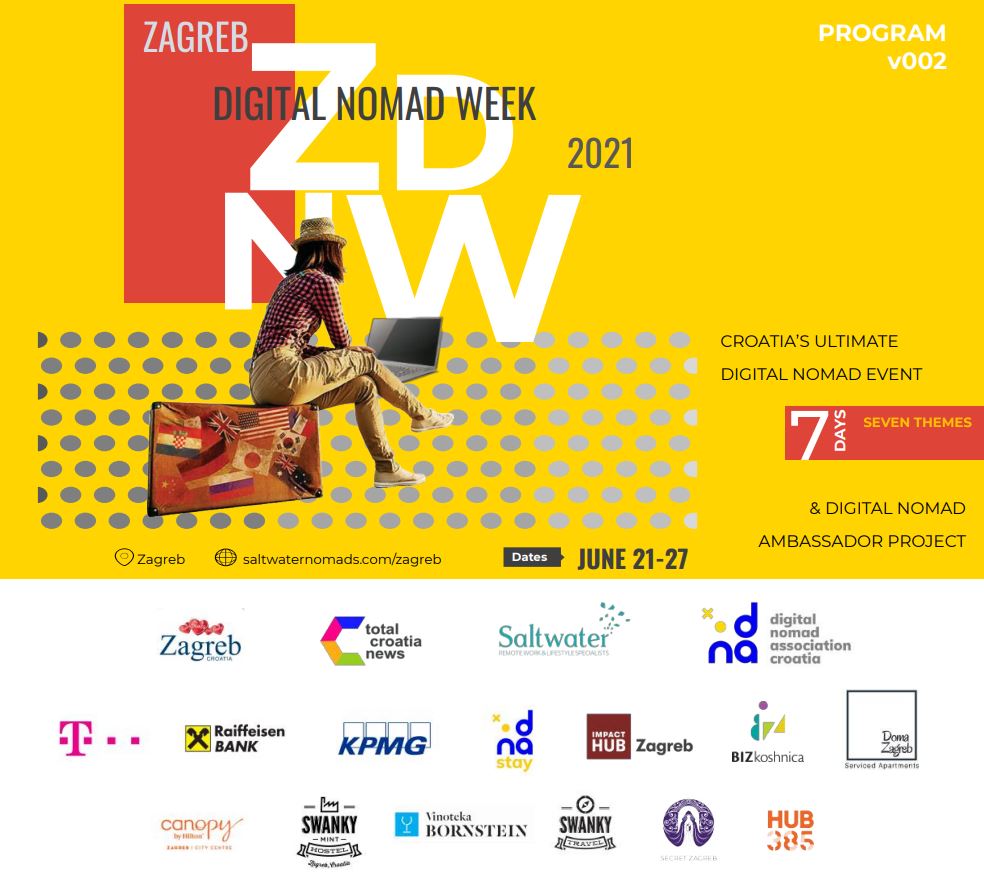
The focus has now shifted to the Croatian capital, where Zagreb Digital Nomad Week 2021 & Zagreb Digital Nomad Ambassador Project kicked off this morning at Canopy by Hilton, one of 7 locations over 7 days, exploring 7 DN-related themes.
The project is a collaboration between Saltwater Nomads, TCN, Doma Zagreb, the Digital Nomad Association Croatia, and the Zagreb Tourist Board (funded by the latter), and there was a high-profile turn out from city and national officials to open the conference.
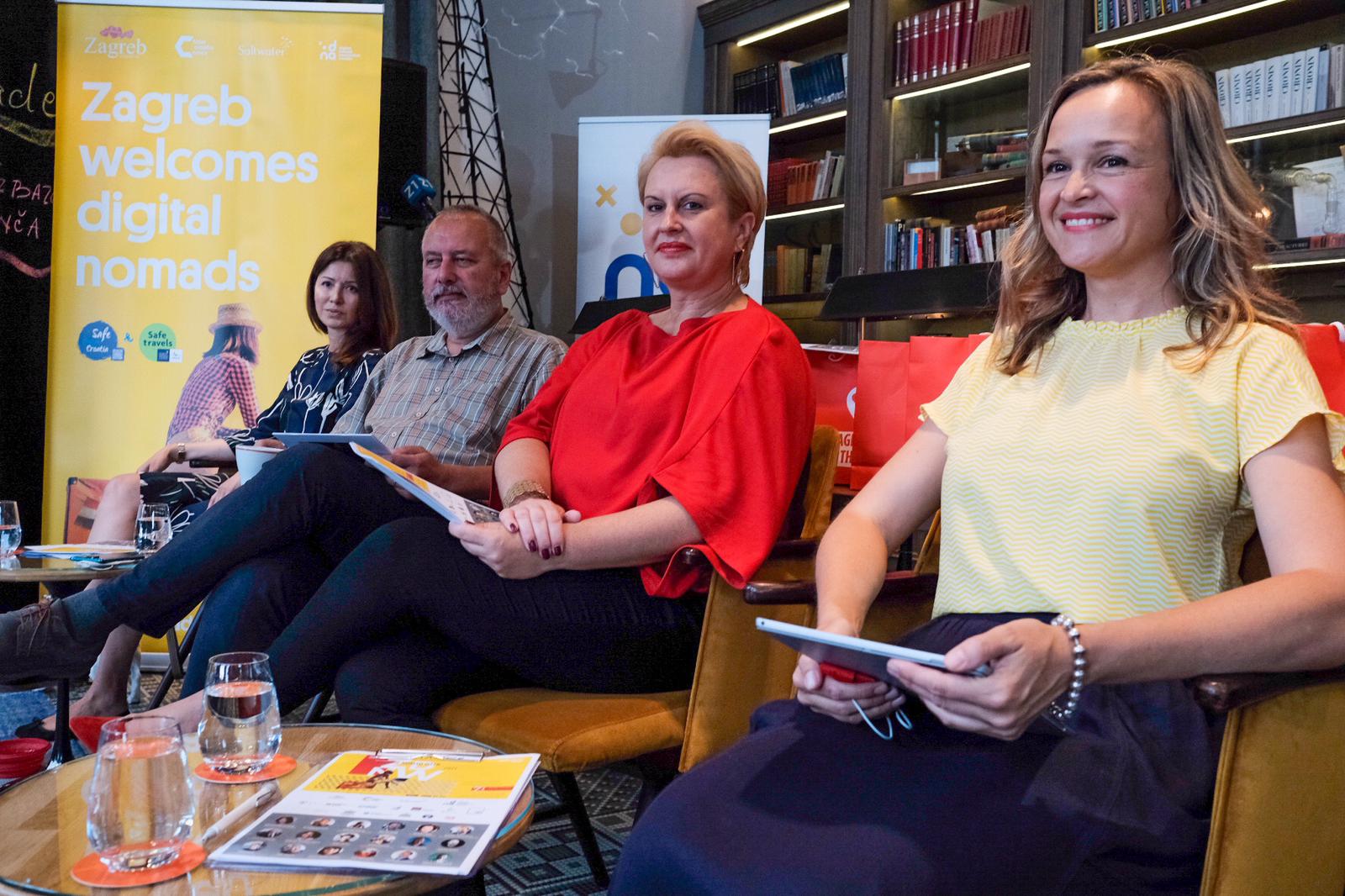
After the opening welcome from Saltwater Nomads CEO Tanja Polegubic, State Secretary for Tourism and Sport, Sandra Herman, was next to speak. Herman pointed out the support the Ministry has given to the push for the digital nomad permit, a collaboration between various ministries, and Dutch entrepreneur Jan de Jong, whose open letter to Prime Minister Andrej Plenkovic on LinkedIn last July started the permit initiative.
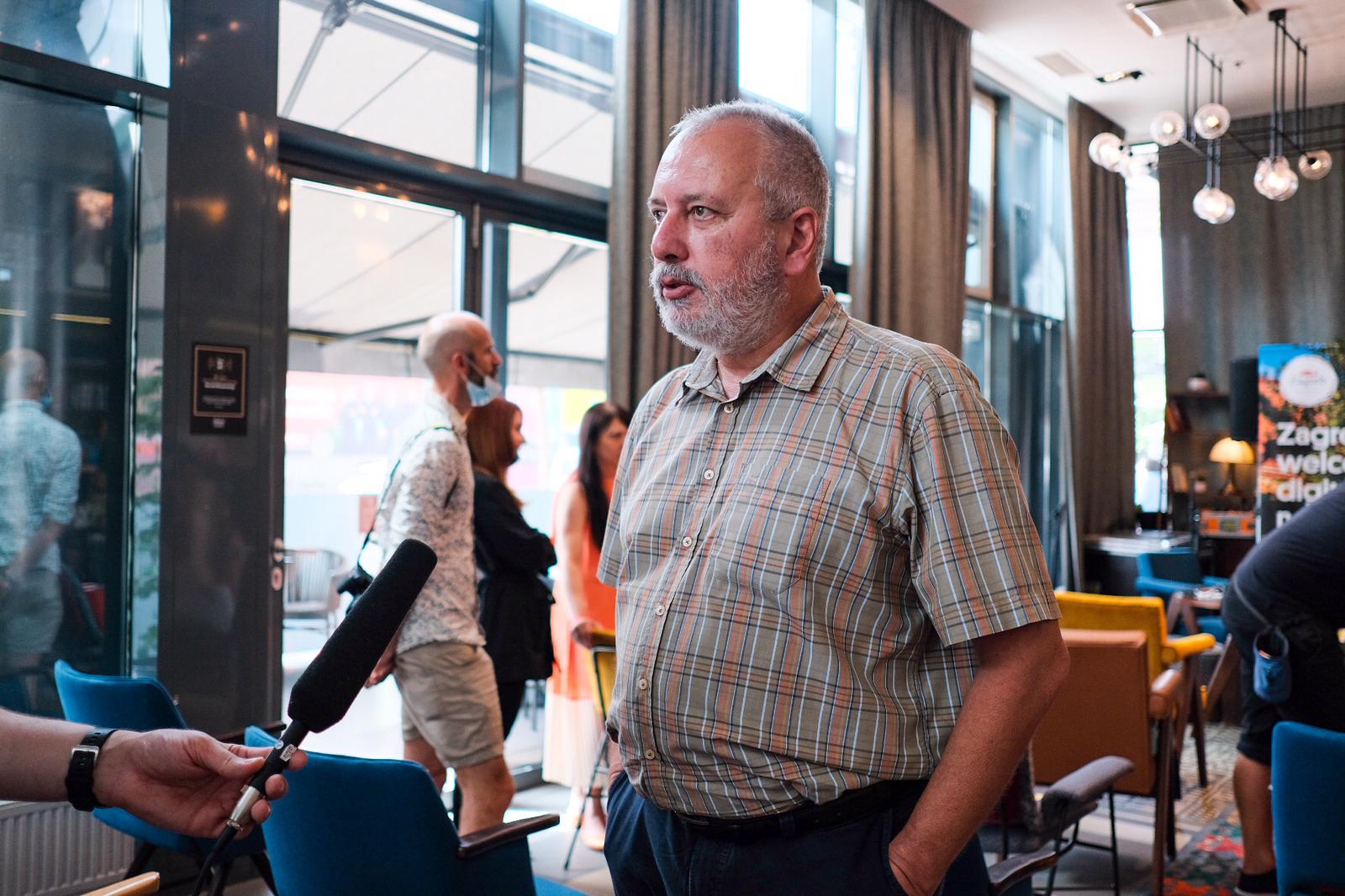
The new Mayor of Zagreb, Tomislav Tomasevic, was represented by Ivo Spigel, one of the founders of the Mozemo platform working with the new city administration. Spigel pointed out the excellence of the Croatian startup scene and plans for digitalisation. A younger and more forward-thinking city administration seems keen to engage with the new opportunity of remote work for Zagreb.
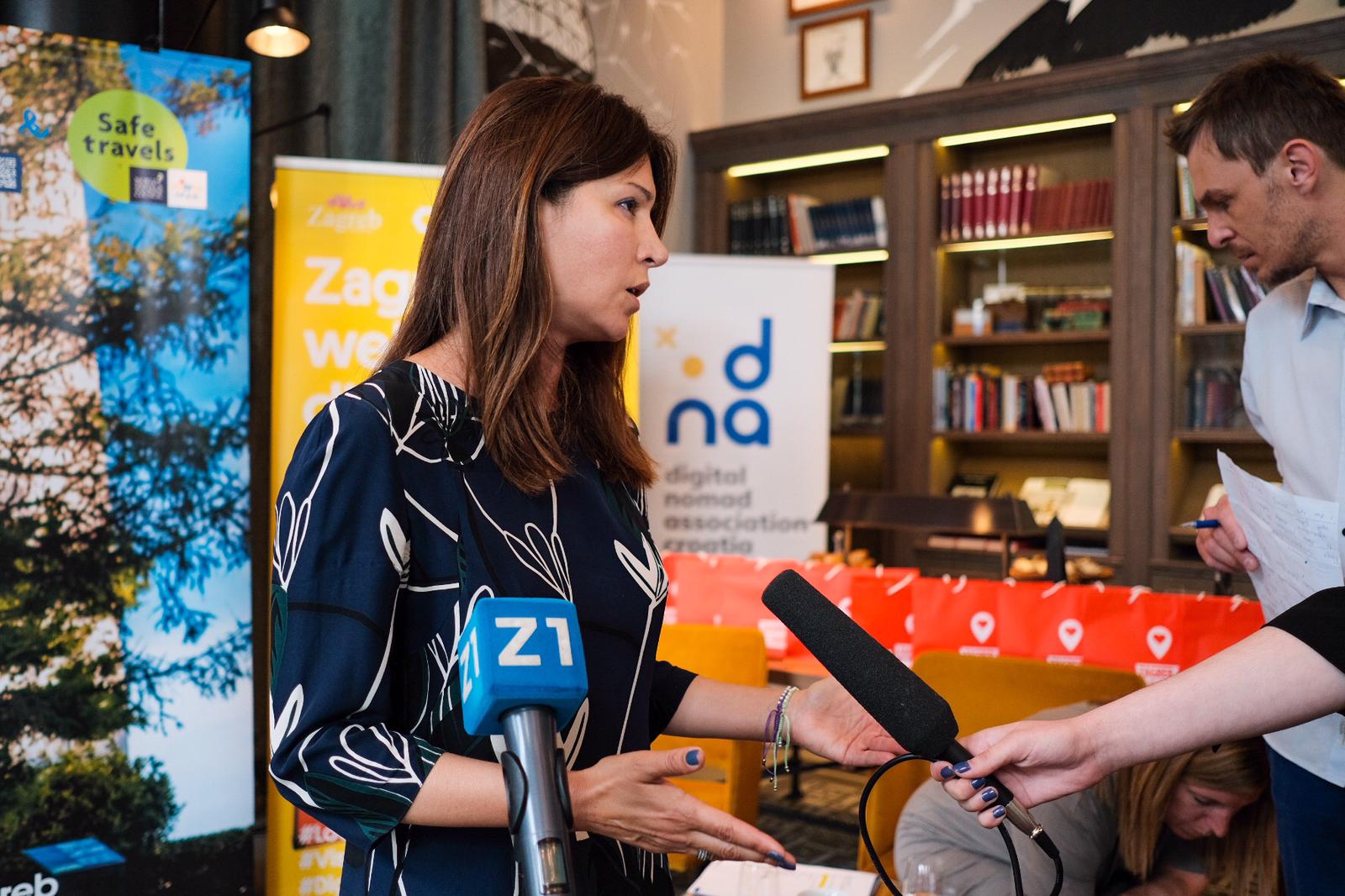
Martina Bienenfled, CEO of the Zagreb Tourist Board, voiced her strong support for the digital nomad initiative, seeing it as a great opportunity for Zagreb tourism to develop in a new direction. A safe, affordable European capital, with enviable lifestyle, great gourmet options, activities and nature in and around the city,, with great connectivity and English widely spoken are just some of the competitive advantages.
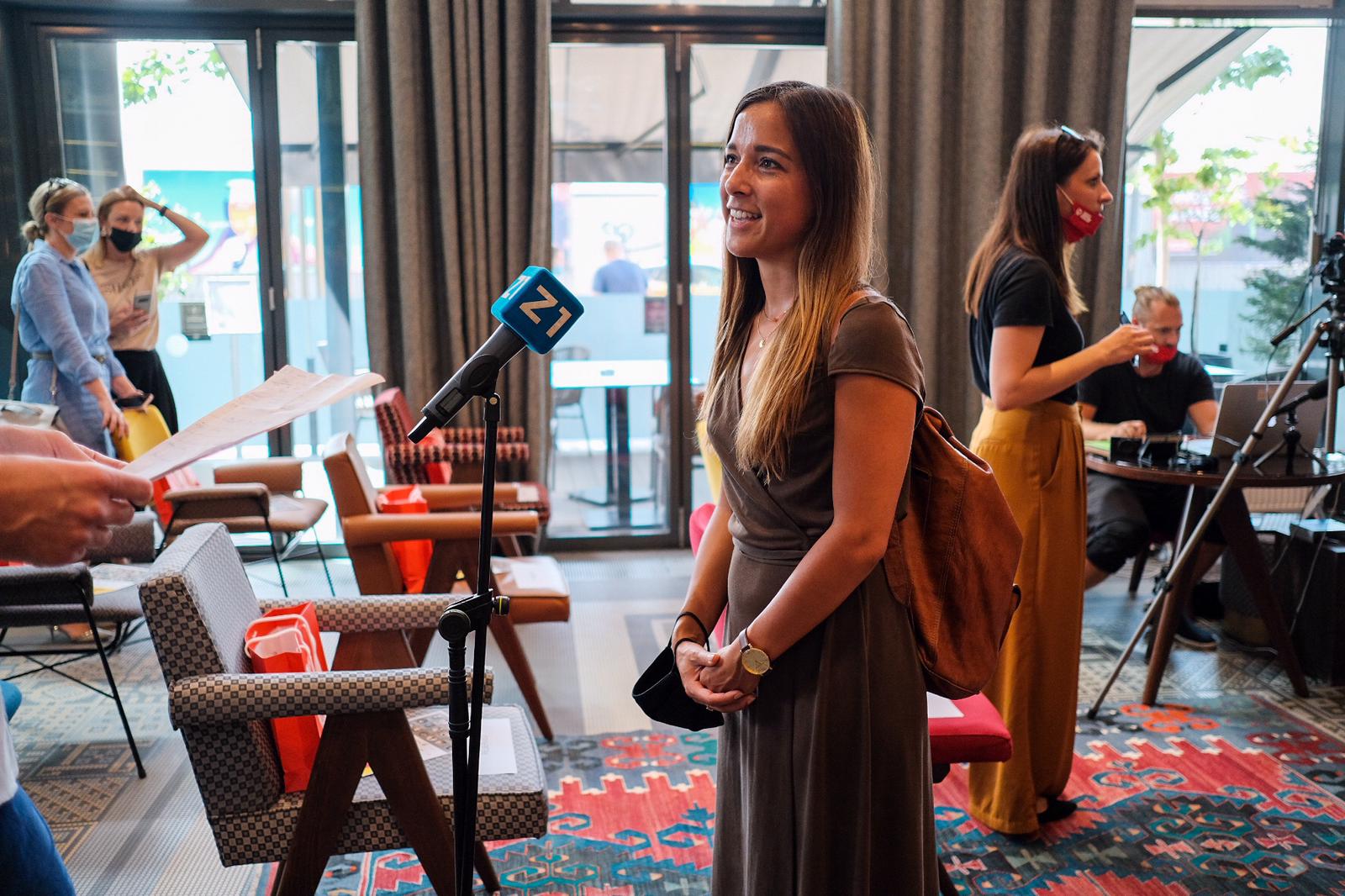
The 7 days will each focus on an individual theme - cybersecurty, online presence, remote careers, tax & finance, the future of work, wellbeing, and explore Zagreb. The keynote speakers are a mixture of in person and remote speakers. Mandy Fransz of Make the Leap Digital, flew in from the Netherlands, and she will have her keynote speech on Oline Presence tomorrow at 09:00 at BIZkoshnica Coworking, tomorrow's host.
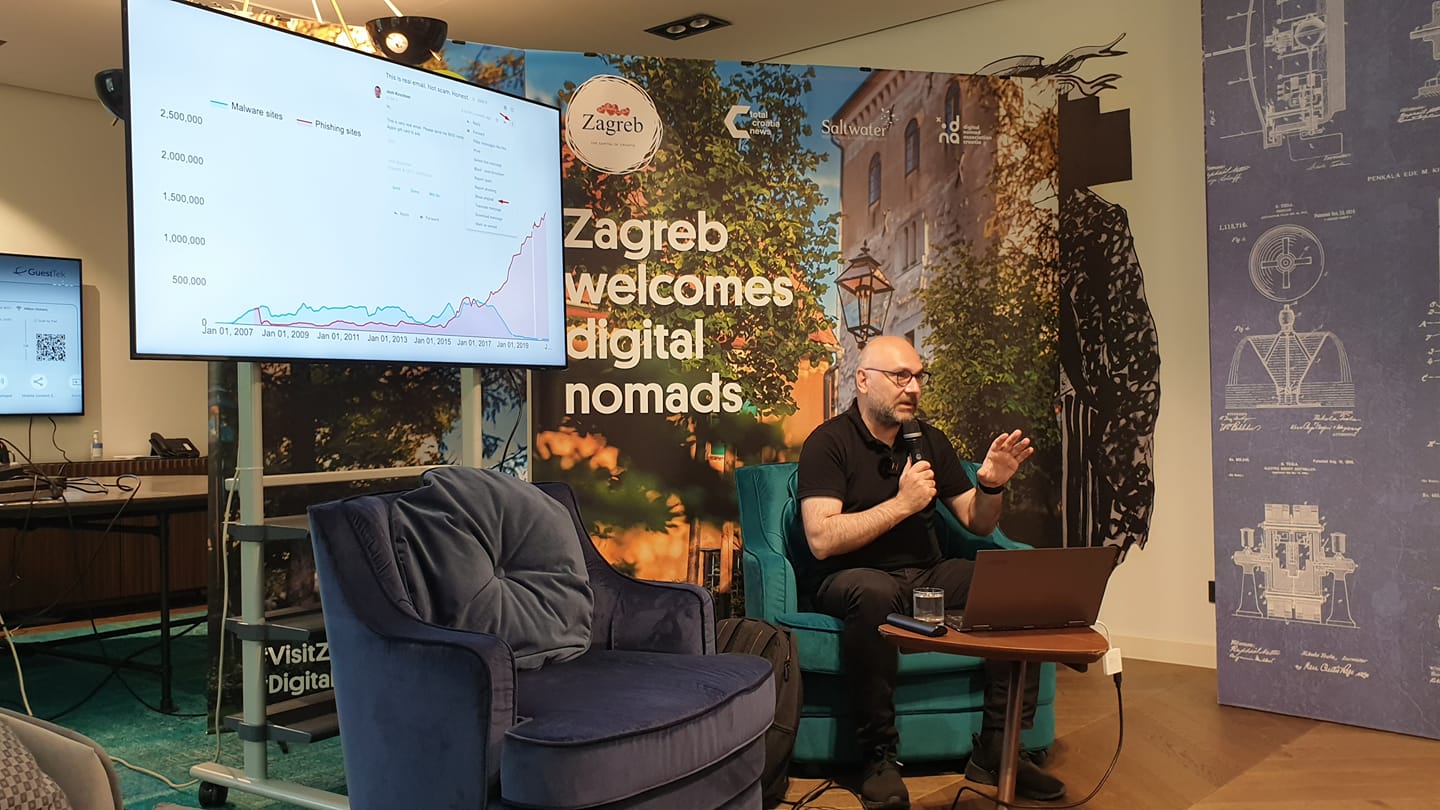
Day 1 focused on the theme of cybersecurity, with Marko Rakar - recognised by the World eGovernment forum as one of the “Top 10 who are changing the world of politics on the internet” - as the keynote speaker. Rakar gaven an entertaining and thought-provoking presentation, which had everyone in the room a little more concerned about their online security. You can read Rakar's pre-conference TCN interview here.
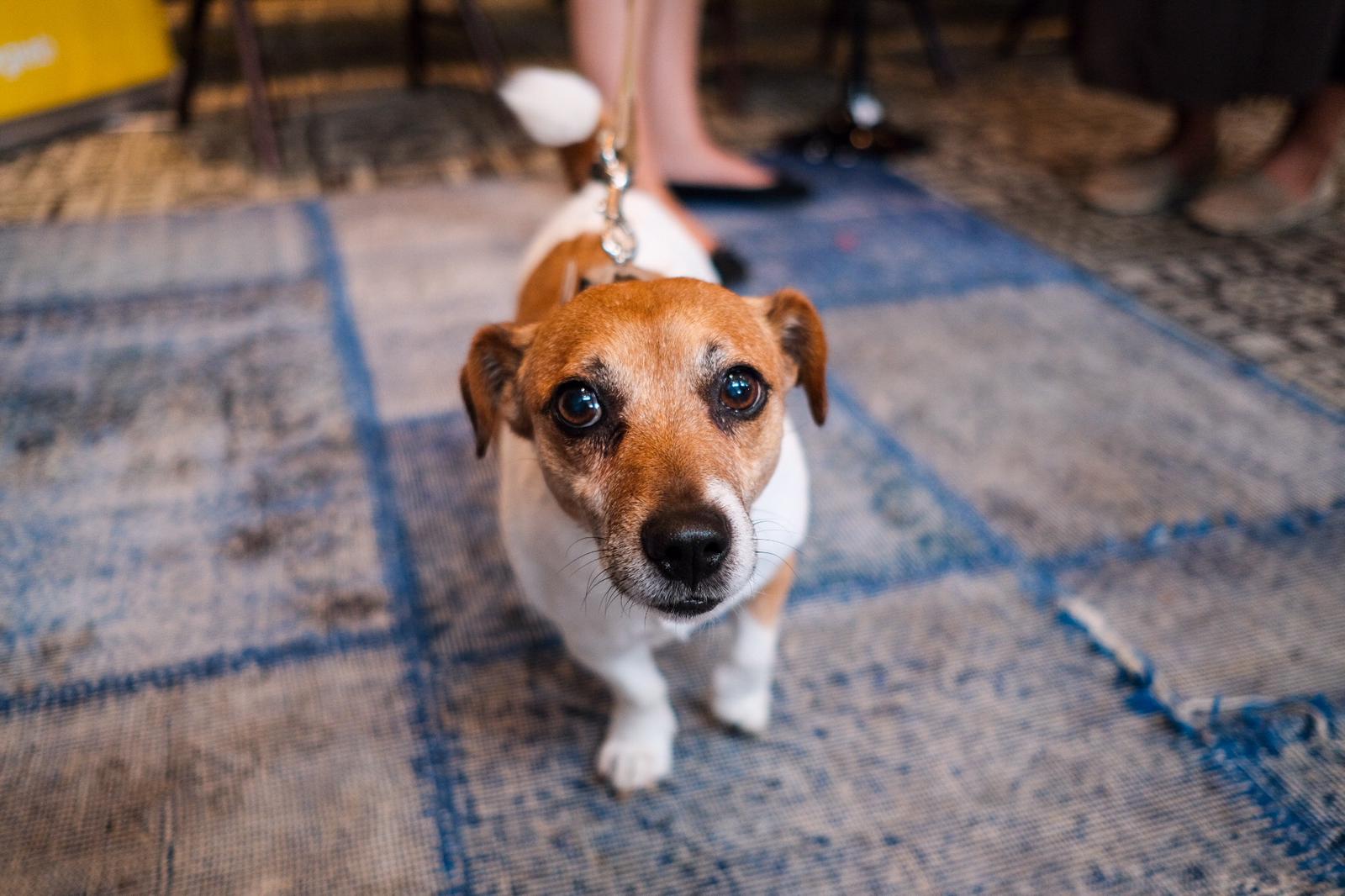
And no digital nomad conference would be complete without its own mascot, and Miso the dog made his presence felt during the opening speeches.
Each evening this week includes a networking Happy Hour, followed by a themed tour of the city by local specialists, Secret Zagreb.
The rest of the programme is available online on the Saltwater Nomads website, and each session is livestreamed. Registration is free, both online and in person, and you can see the rest of the program and register here.
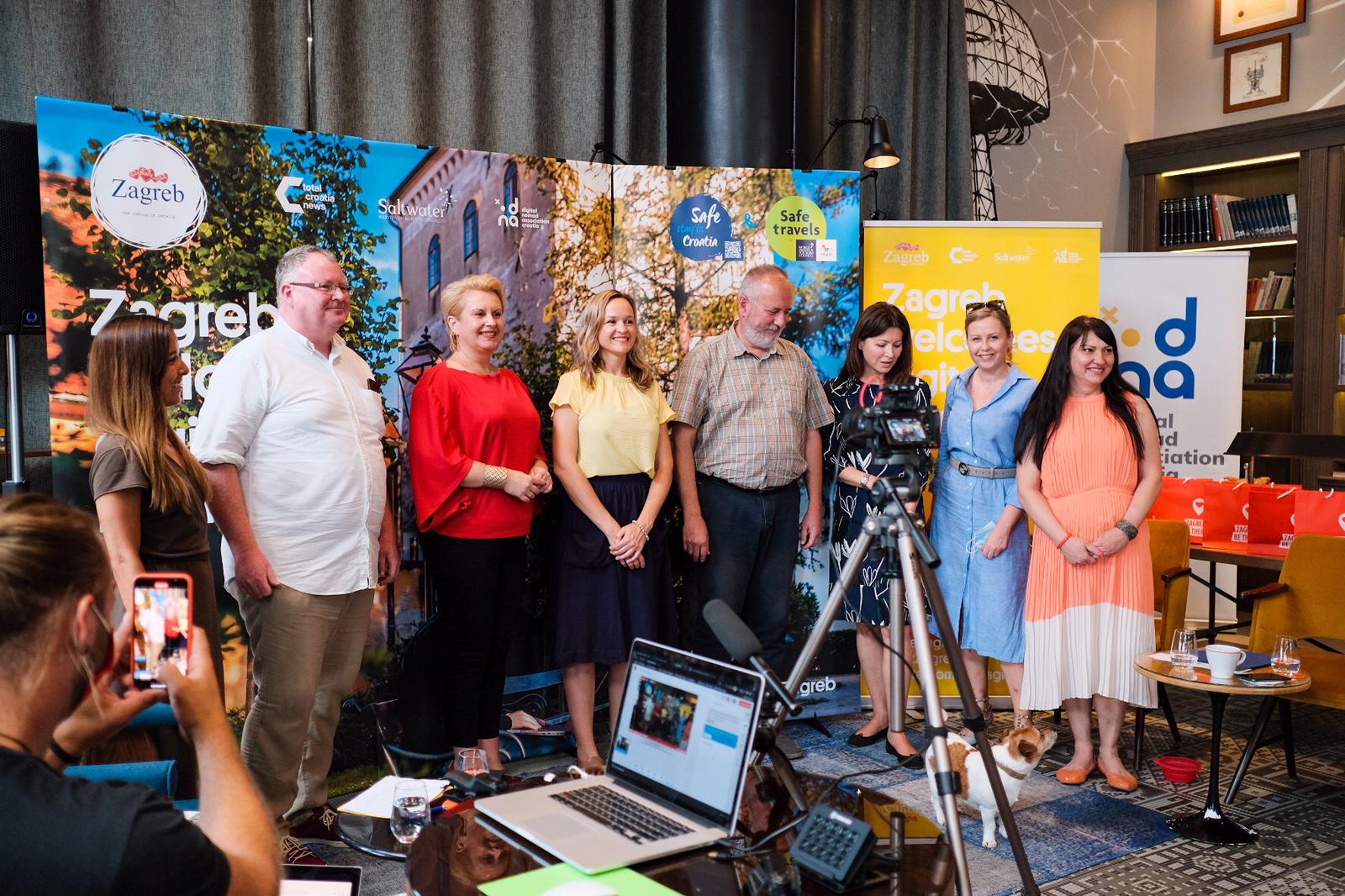
Meet Friday's keynote speaker, Albert Cañigueral, one of the Dubrovnik nomads-in-residence, and recently appointed to lead the Catalan Government's Transparency and Open Data division. Albert will be focusing on the topic of the day, the future of work.
Meet tomorrow's host - BIZkoshnica, Zagreb Coworking Since 2015: Mirela Marovic Omerzu Interview.
Tourist Board Director Martina Bienenfeld on Zagreb Digital Nomad Week, Ryanair, Tourism in Pandemic
For the latest news and features od digital nomads in Croatia, check out the dedicated TCN section.
80th Anniversary of Antifascist Uprising Marked in Zagreb
ZAGREB, 19 June 2021 - Organisations of antifascist fighters and antifascists held a march in Zagreb on Saturday to commemorate Antifascist Struggle Day and the 80th anniversary of the Antifascist Uprising in Croatia.
The participants, carrying portraits of their national heroes, marched from Victims of Fascism Square through the city center to the Republic of Croatia Square, where they displayed a banner calling for this square to be given back its former name - Marshal Tito Square.
The first such march was held on 8 May 2018, and then on 8 May 2019, to celebrate the victory of the anti-fascist coalition in the Second World War. The event is called the Immortal Partisan Detachment, after a similar event, called the Immortal Regiment, launched in the Russian city of Tomsk in 2012 to honor Russian military and civilian casualties in the Second World War as part of Victory Day celebrations.
The Alliance of Antifascist Fighters and Antifascists of Croatia (SABA) said that this year's march was dedicated to the 80th anniversary of the uprising and the formation of the First Partisan Detachment in Croatia.
For more news in Croatia, click here.
Future of Work, the View from Barcelona: Albert Cañigueral Interview
June 19, 2021 - Recently appointed to lead the Catalan Government's Transparency and Open Data division, Albert Cañigueral will be a Future of Work speaker at Zagreb Digital Nomad Week.
One of the many exciting things about next week's Zagreb Digital Nomad Week (ZDNW) is the sense of continuity from recent events in Dubrovnik. Dubrovnik for Digital Nomads last October was the first-ever digital nomad conference in Croatia, and it was followed by the world's first Digital Nomad-in-Residence project in the Pearl of the Adriatic.
One of the ten winners was a Future of Work explorer (and published author on the subject), Albert Cañigueral from Barcelona, whose application video you can see above and initial interview here.
Albert's contribution and insights throughout the month were magnifcent, and he was a popular member of the group, and he became known as the Dubrovnik Beach Bum after an exercise in stereotypes and reality on the digital nomad lifestyle.
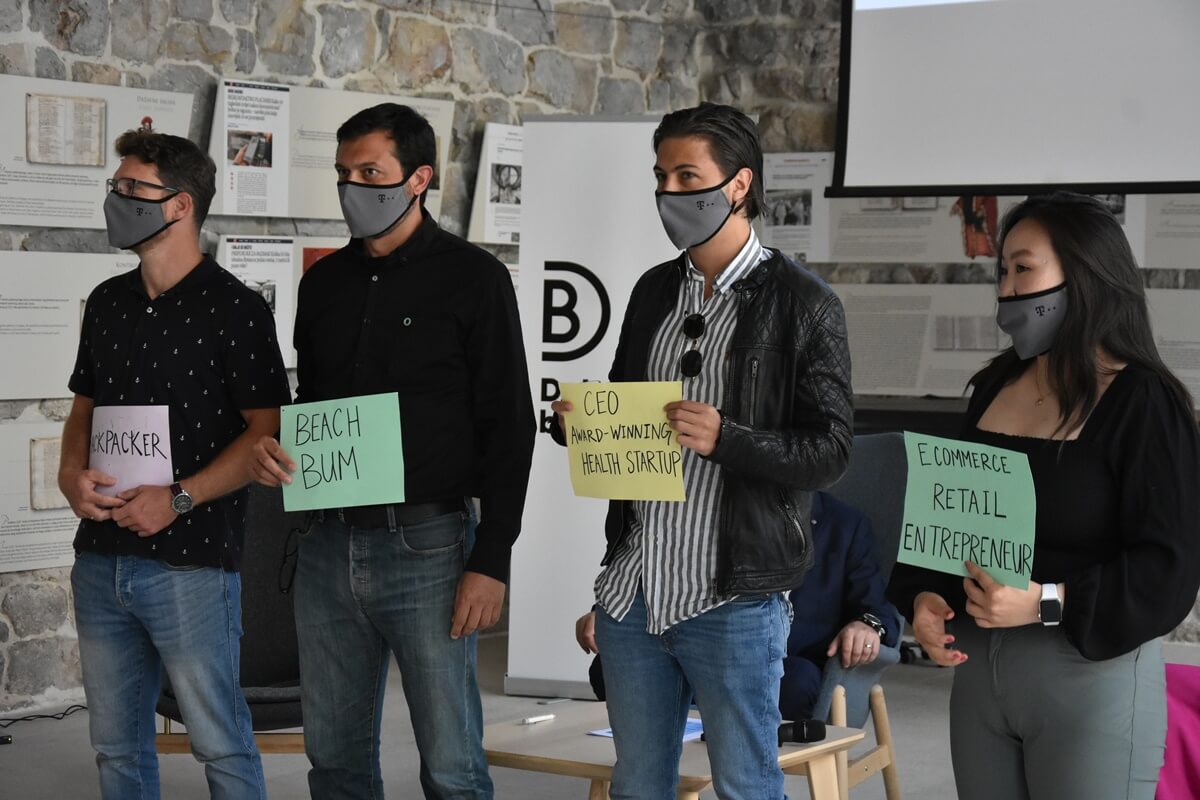
It was only natural that we would try and enlist Albert's expertise in ZDNW, and we are delighted that he has agreed to be a keynote speaker on Friday, June 25, on the subject of the Future of Work.
Albert had initially planned to come in person, but was recently approached to head the Catalan Government's Open Data and Transparency division, and so his presentation will be done remotely. Albert kindly found some time to tell us more about his thoughts about Croatia as a DN destination, as well as the opportunities and challenges ahead.
Albert will not be the only contributor from the Dubrovnik programs, with fellow resident nomad-in-residence, Ron Tardiff, coming down from Budapest, and Dubrovnik Tourist Board director Ana Hrnic also a ZDNW panelist.
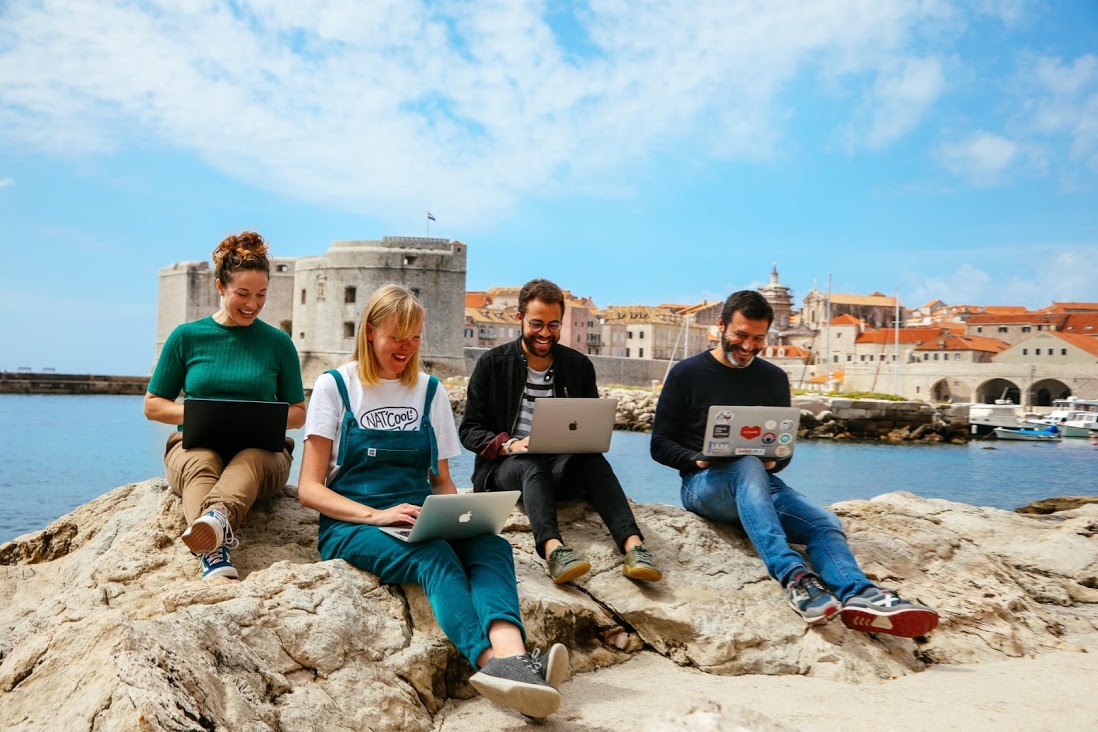
1. From Dubrovnik beach bum to leading the Catalan government's Transparency and Open Government division. Your life has changed since we last met in Dubrovnik a few weeks ago. Congratulations on your new position. Tell us firstly a little about that.
Thank you! It was completely unexpected. I’ve been part of a project “Catalunya 2022” with 30 experts to deliver a post-pandemic set of ideas for Catalunya. One of the co-leaders of this project, Victoria Alsina, was appointed “Consellera d'Acció Exterior i Transparència” of the catalan government (Generalitat de Catalunya). When she started creating her team, I was asked to join, and I could not refuse. It’s an honor to serve from this position and I am sure I will learn a lot too.
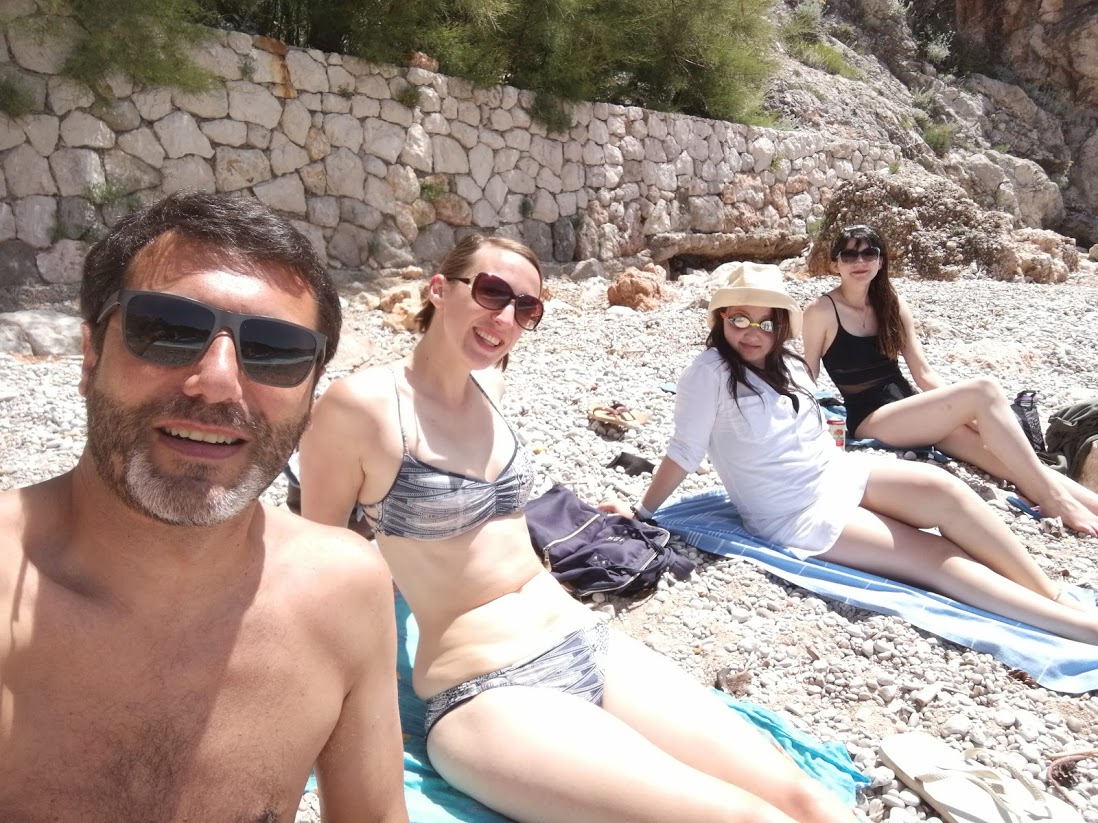
2. As an expert and published author on the future of work, and someone who has just spent a month as one of Dubrovnik's Digital Nomads-in-Residence, your perspective is very interesting. Tell us firstly about your Dubrovnik experience. You were obviously not expecting to find the perfect DN destination. How would you sum up your 4 weeks there?
The sentence “content is king, context is queen” is widely used in marketing. In the DN universe I would translate as people (community) is king and location is queen. Our experience was just mind-blowing because of the community of DNs that were selected to participate, the partners of some DNs who decided to be part of the adventure, the local people who joined the workshops and other moments, the professional team that ran the whole programme and also the support from the city hall (in the middle of local elections!).
Then the 4 weeks were a lot about exploration, discovery, going with the flow, collective learning, etc.
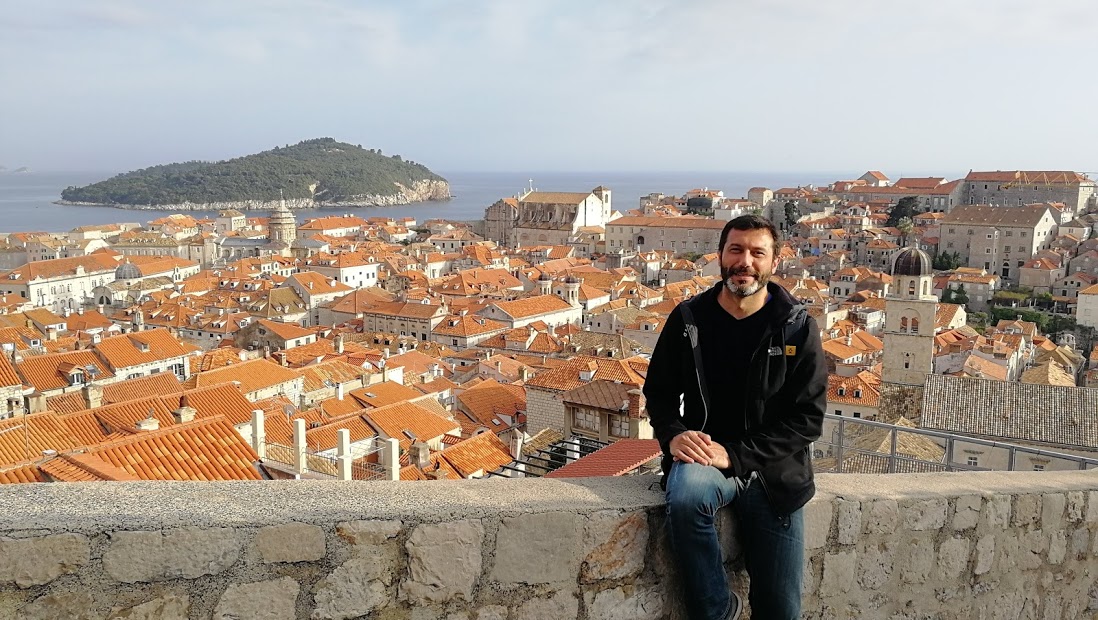
3. Barcelona is an established nomad hot spot. What lessons can cities like Zagreb learn to make themselves more attractive to potential digital nomads?
“Simplicity is the ultimate sophistication” is a quote attributed to Leonardo da Vinci. For any destination that wants to attract DNs the simpler the better. I mean that in terms of where to find DN-related information, where to access services (lodging, work spaces, health, communication, etc.), bundled offers for mid and long term stays, reduced language barriers, where to find other DNs and locals, etc.
I would also encourage cities to break from the “competing for DNs” with a scarcity mentality and embrace a “network of DN destinations” with an abundance mentality and cooperation among cities. What about a network of DN friendly destinations?

4. From your recent experience in Croatia, what would you say are its competitive advantages in the DN niche?
The obvious ones are location, climate, living costs, widely spoken English, friendly locals, etc.
A unique asset that we discussed several times was that Croatia is not part of the Schengen area so that provides a number of unique benefits for short term DNs that are always juggling with visa limits. The pioneering and generous DN visa is also another important asset.
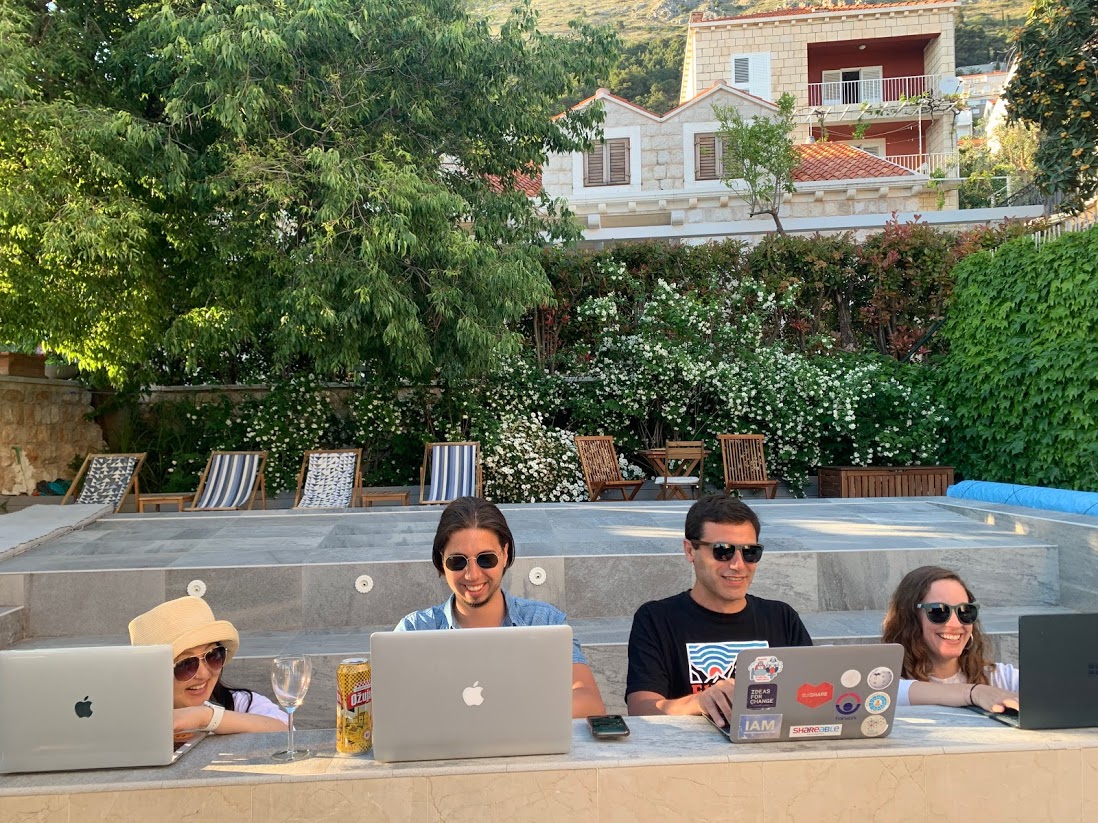
5. And what are the areas Croatia needs to focus on to improve its offer? Do you have 3 quick wins that Croatia and Zagreb could implement?
I won’t be very original as the recommendations we gave to Dubrovnik are largely applicable to Croatia in general and Zagreb in particular: 1) a “seal” that helps to identify DN friendly accommodations (including coliving) 2) as well as orchestrating an ecosystem of workspaces in the city (coworking, hotels, public libraries, etc.). 3) To think not only in terms of long term DNs but also in shorter experiences like ours in Dubrovnik (1 month) with the slightly different concept of “workations”. I see a lot of potential in this area, especially for European workers.
6. The future of work is a weighty topic. Without writing another excellent book on the subject, can you give us a snapshot of where this is all going, and how do cities like Zagreb prepare for the imminent huge change?
It’s impossible to predict where this is all going. Work (tasks), management of workforces and workplaces are being highly impacted by digital technologies. All at the same in all types of directions depending on each context. So the message is we are moving from a monolithic (quasi religious) perspective on what “work” is and means to a huge range of possibilities that we are only starting to experience and understand. Be flexible and eager to learn
In the project “Ciudad en Beta” (City in Beta), that we recently started, we are exploring how the new ways of working and living are creating a metamorphosis in the cities, metropolitan and rural areas. Check the twitter feed to get an idea of the topics at hand. My recommendation is to keep a truly systemic perspective. One must break functional, managerial and political silos while trying to prepare for these changes from a city perspective. Think about city services, economic development, real estate, tourism and citizens wellbeing at the same time. Keep an eye also on high tech developments that might have an impact on how we work in the next decade (telexistence, metaverse, etc.) while trying to anticipate sociological and cultural changes in the analysis. This last bit is the hardest to predict.
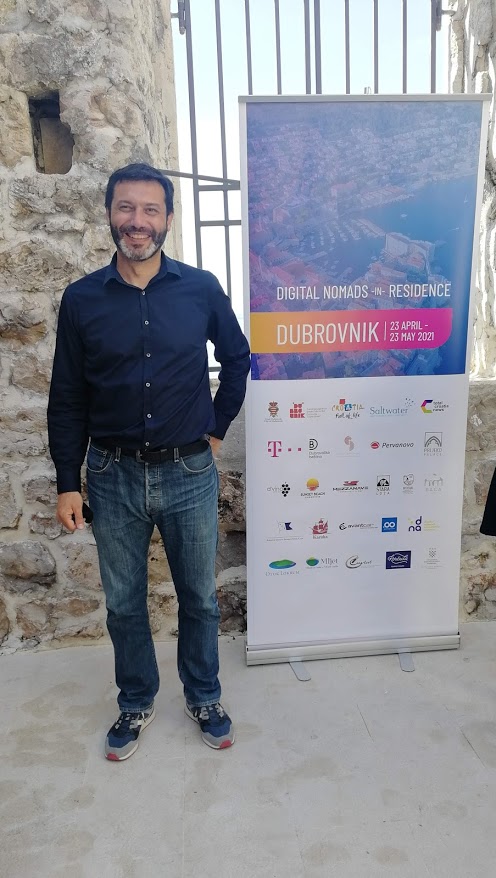
7. We are thrilled that you will be joining Zagreb Digital Nomad Week as a keynote speaker. Tell us a little about your involvement.
I wanted to travel back to Croatia but due to my new position that is, unfortunately, not possible. I will be part of the discussions around the future of work on friday explaining some of the topics mentioned in this interview and deep diving where people have more interest. I am really excited to “be back” to Croatia.
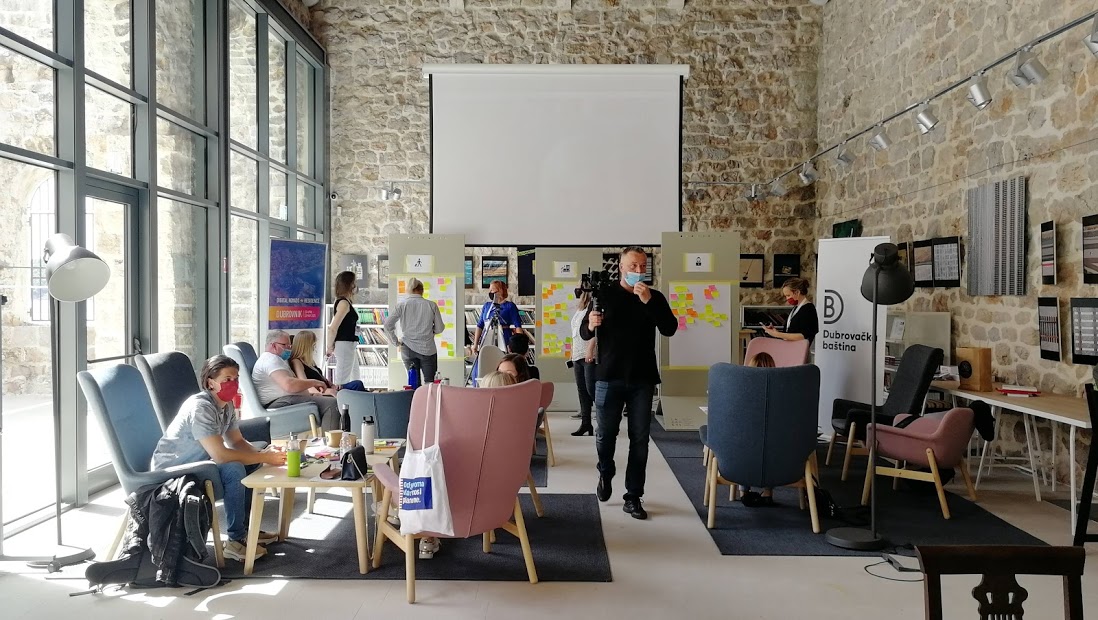
8. And lastly, if Croatia takes the correct steps to develop this niche, where do you see Croatia on the European stage for digital nomads in 3-5 years?
Clearly on the top 5 list of DN friendly destinations in the Mediterranean area. Hopefully with lots of links with other DN friendly destinations as part of, and maybe leading or co-leading, the network idea I hinted at before.
DNs growth in the next 3-5 years will create doubts and tensions in several areas of our work, life and social security systems which were designed and optimized for the traditional way of working. For it’s scale and dynamism I think Croatia can be at the forefront of the much needed experimentation.
You can register for free for Albert's presentation (and all other presentations), both online and in person on the Saltwater Nomads website.
Want a free month of accommodation from July to December as a Zagreb Digital Nomad Ambassador?
For the latest news and features on digital nomads in Croatia, follow the dedicated TCN section.
Zagreb Digital Nomad Week 2021: Final Program, Register Now!
June 18, 2021 - The Croatian capital will showcase its digital nomad potential next week with the inaugural Zagreb Digital Nomad Week 2021. See the full programme.
Seven days, seven themes. Locations and events all over the city. A chance to showcase the magic of Zagreb from all angles.
Zagreb Digital Nomad Weeks kicks off on Monday (see the full programme here), a collaboration between Saltwater Nomads, TCN and Zagreb Tourist Board (who are financing the project), supported by the Digital Nomad Association Croatia, Doma Zagreb, KPMG, Hrvatski Telekom, and Raiffeisen Bank.
Each day will focus on a different theme - cybersecurity, online presence, remote career advice, tax & finance, the future of work, wellbeing, and explore Zagreb - with a mix of presentations, networking, free coworking, and social events.
Zagreb Digital Nomad Week 2021 will bring together a great list of Croatian and international experts in locations all over the city, and there are many Croatian businesses which have bought into the concept to co-create a fantastic week for those looking to explore Zagreb as a digital nomad destination.
Attendance is free, both online and in person, but be aware that physical places are limited, due to the current measures. All registrations are being handled via the Saltwater Nomads website. The event will be live streamed on TCN social media, as well as the Zagreb Tourist Board YouTube channel.
A key element of the week will be networking, with several social events arranged in the evening, as well as some of Zagreb's most interesting and innovative tours, guided by the inimitable Iva Silla from Secret Zagreb.
ZDNW follows on from two successful events, also organised by Saltwater Nomads, in cooperation with TCN, the City of Dubrovnik, and the Dubrovnik Tourist Board, and it is encouraging to see participation at next week's event from key partipants from last October's Dubrovnik Digital Nomads-in-Residence conference (the first in Croatia), and last month's Dubrovnik Digital Nomads-in-Residence. Dubrovnik Tourist Board director will take part in the Zagreb event on Friday on a panel moderated by Ron Tardiff, one of the 10 resident nomads, while another Dubrovnik nomad resident, Albert Cañigueral, will give a keynote speech on the future of work. Cañigueral was last week appointed by the Catalan government to lead its Open Data and Transparency division.
Full details of the weekend programme will be released on Monday.
For an online version of the programme, click here.
To register for each of the events, click here.

No week-long conference highlighting the Zagreb lifestyle would be complete without its four-legged mascot.
Meet Mišo, The Dog,Mišo, The Dog, born August 15, 2011 in the zodiac sign of Leo. To our knowledge, this lively ten-year-old is the father of five children, and perhaps more. This adorable Jack Russel suffers from a personality disorder and thinks of himself as a Rottweiler. Mišo mainly spends his time sniffing and exploring the numerous green parks of Zagreb. He is a special expert in sniffing the green slopes of Šalata area. When on vacation, Mišo enjoys the island of Hvar the most, where he is already a well-known and welcomed guest.
See you in Zagreb!
For more news and features about the digital nomad scene in Croatia, follow the dedicated TCN section.


